
2023/24



2023/24


The UNC School of Education is committed to realizing the transformative power of education and — in turn — is redefining what it means to educate. Education has the power to break down barriers, lift up individuals, and empower communities to rise and thrive.
To that end, we inspire educators to lead, think creatively, act with passion, and strive toward equity for all.
Peabody Hall, Campus Box 3500
Chapel Hill, NC 27599-3500
Phone: (919) 966-1346
Email: ed@unc.edu
Web: ed.unc.edu
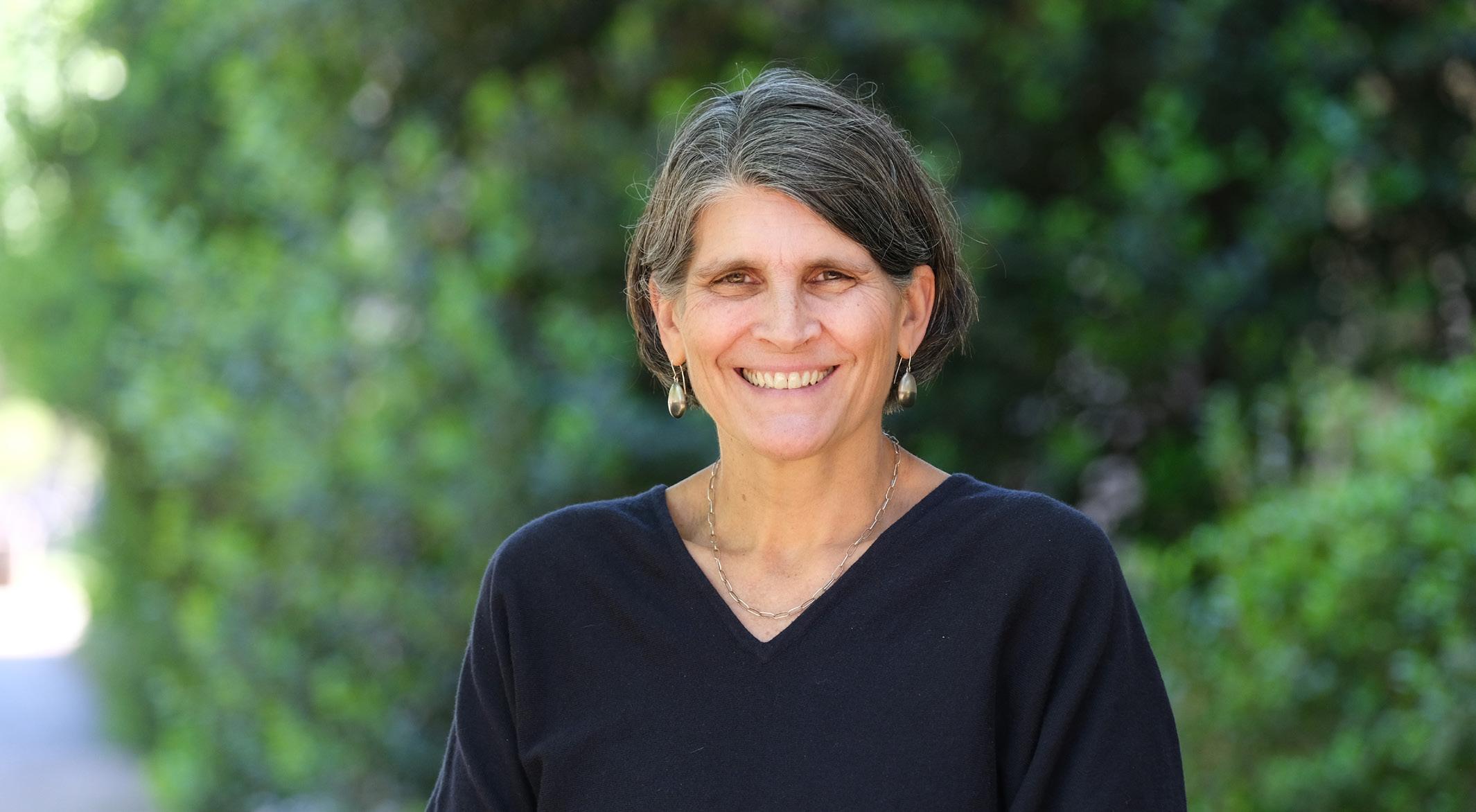
Dear Friends and Colleagues in Education,
I am honored to share this year’s annual report for the UNC School of Education. Within these pages, you will read about highlights and the outstanding achievements of our faculty, staff, students, and alumni between July 1, 2023, and June 30, 2024.
As I reflect on this time, I am proud of the work the School of Education community has done. I am especially excited for you to read about work happening through two pivotal initiatives. In our last annual report, you read about a $3 million private gift and a $2+ million U.S. Department of Education grant that launched the Fellows for Inclusive Excellence and Helping Heels, respectively. In this report, you will meet members of each program’s first cohort, future teachers and school counselors. These programs are working hand-in-hand with nearby rural school districts to address educational disparities and improve student outcomes — academic outcomes certainly but also critical mental health and student well-being outcomes. Both efforts strengthen our educator preparation programs and our partnerships with rural districts.
Another milestone you will read about within these pages: The UNC School of Education hosted and Dorothy Espelage, Ph.D., William C. Friday Distinguished Professor of Education and an internationally renowned bullying prevention researcher, organized the 2023 World Anti-Bullying Forum — the first time this international event has been hosted outside of Europe. This gathering brought the world’s foremost experts in bullying prevention to North Carolina, showcasing our School’s leadership in addressing one of the most pressing issues facing young people and educators today.
This past March, the School also launched a new online Ed.D. program focused on organizational learning and leadership. Through our exceptional faculty members and the courses they have developed, we believe students in this program will graduate prepared to bring a human-centered, research-driven leadership approach to their organization no matter the field.
This past year, we also said farewell to Fouad Abd-El-Khalick, Ph.D., who led the School as our dean with a collaborative spirit for eight remarkable years. His legacy is one of partnership, and that partnership spans the Carolina’s campus, across North Carolina, and beyond. As he embarks on his new journey as provost at the University of Massachusetts Amherst, we carry forward and build upon his vision of collaboration and excellence in education.
I encourage you to explore the stories within this annual report. There are many in this UNC School of Education community leading extraordinary efforts – through groundbreaking research, powerful innovation, and educator preparation – to best serve educators, learners, and more across North Carolina and the U.S. and around the world.
Thank you for your work to Propel the World through education.
Happy reading.

Jill V. Hamm Interim Dean
William C. Friday Distinguished Professor of Education

At the UNC School of Education, we know people propel our world. People who imagine and persevere and create. Here, in Chapel Hill, we build people’s minds, spirits, and resolve to make the world a better place through education. Our community of scholars, students, staff, and alumni work to solve pressing problems, to better understand learning, to improve teaching, to redefine what it means to educate lifelong and lifewide. We innovate. We ask and answer tough questions — to ensure that every learner has the opportunity to reach their maximum potential. We Propel the World.
The UNC School of Education is a community of collaborative researchers, practitioners, students, staff, and engaged alumni and supporters. We are dedicated to realizing the transformative power of education and to achieving equity in educational access and outcomes for all learners in a diverse and just society. Our work is guided by four pillars:
We recognize that learning is dependent on the well-being of children, their families, and their communities. With a focus on underprivileged and underserved communities, we seek work with educators, parents, schools, communities, and beyond, in partnership with other schools and units at Carolina, to empower learners and communities to thrive.
We empower educators and scholars to lead; to think creatively, act with passion, and strive for excellence and equity for all. Equipped to succeed in their professions, our graduates also emerge as leaders in their institutions and communities, and mindfully contribute toward continually improving and transforming them.
We seek productive and meaningful partnerships across disciplinary and institutional boundaries, working with all stakeholders within and beyond formal institutions of education. A well-educated, diverse, and empowered public is key to addressing social inequities and injustices; promoting and supporting the health and well-being of all; and ensuring the competitiveness and prosperity of our state and nation.
We produce cutting-edge knowledge and pursue innovative, research-based solutions to the most pressing problems of educational theory, practice, programs, and policy in North Carolina, the nation, and beyond.
The UNC School of Education is led by a dynamic team of scholars and professionals focused on the success of our students, the School, and the academy.
At right is the leadership team at the UNC School of Education entering the 2024–25 academic year.

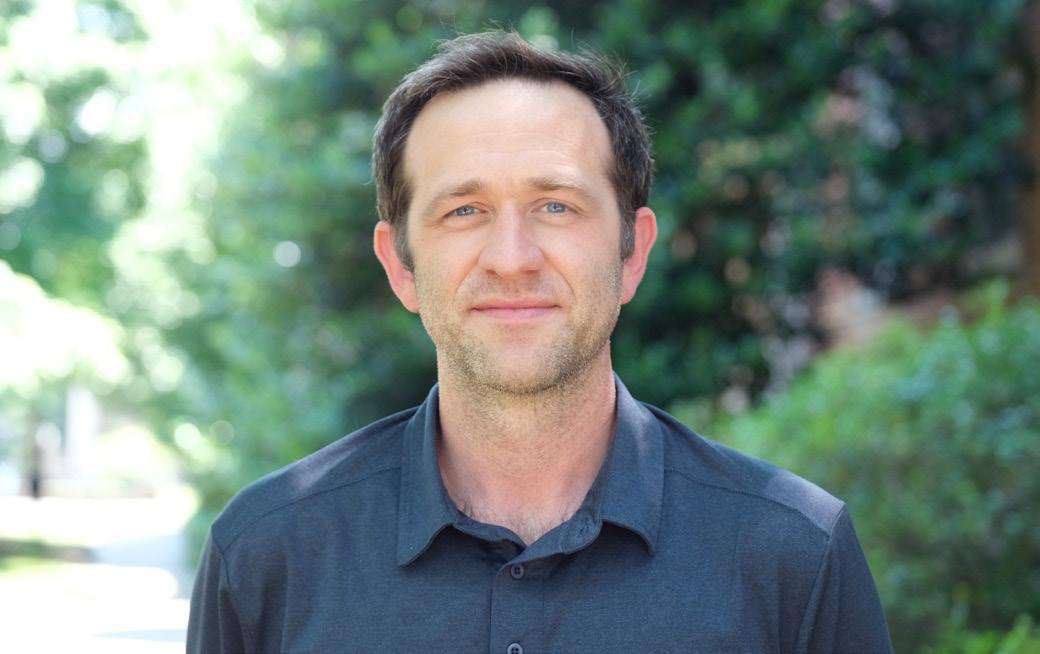

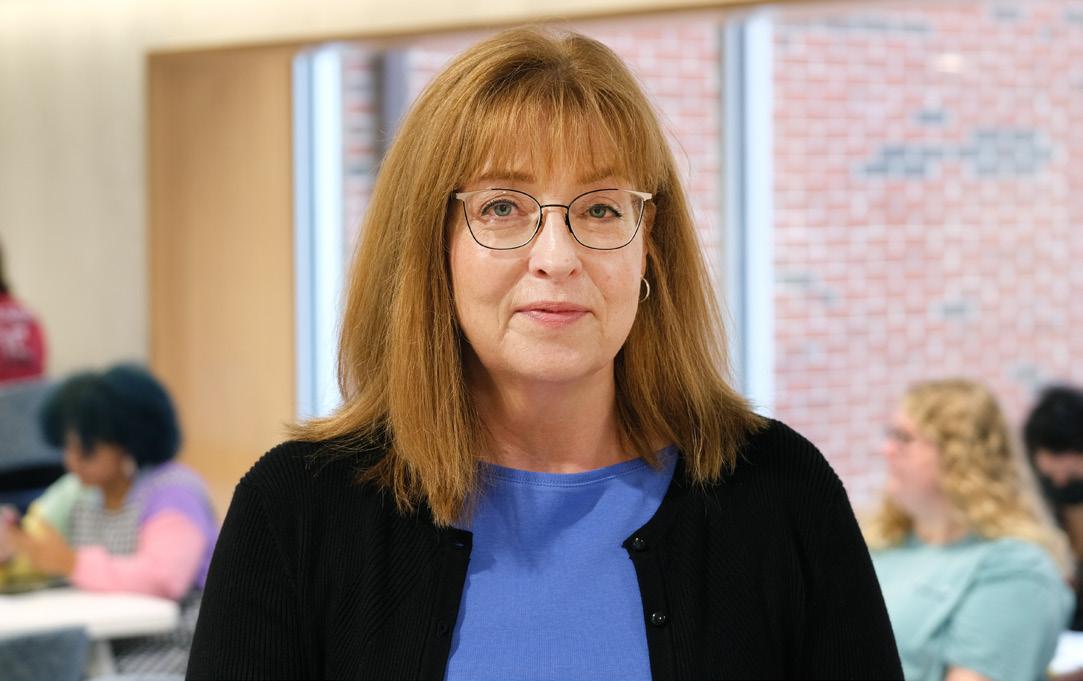
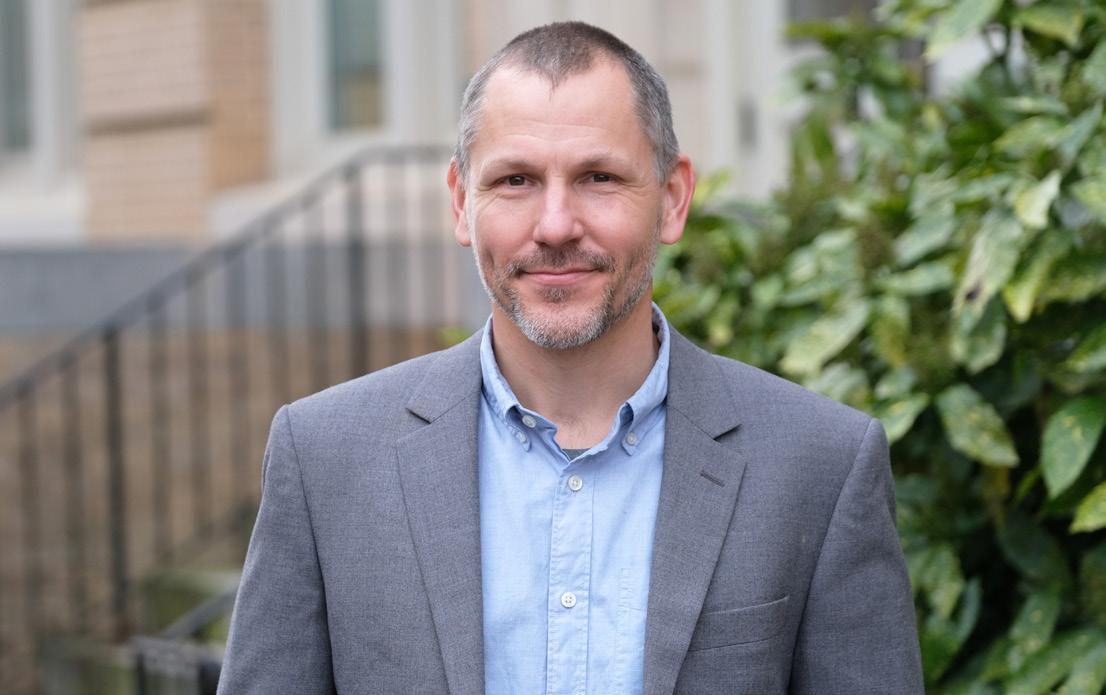





In U.S. News & World Report’s most recent rankings of schools of education, the UNC School of Education remained in Top 25 U.S. schools that grant doctoral degrees in education for the fifth consecutive year.
Seven of the School’s specialty programs ranked among the best in the nation:
Faculty members at the UNC School of Education and their collaborators at the University of North Carolina at Chapel Hill and beyond pursue innovative educational research and projects. They explore the nature of learning that contributes to effective teaching, data-driven classroom interventions and curricular improvements, insightful analysis leading to informed policies, and evidence-based advancements in educator preparation.

NSF-FUNDED PROJECTS
NIH-FUNDED PROJECTS
Total Annual Research Expenditures
U.S. DEPARTMENT OF EDUCATION-FUNDED PROJECTS
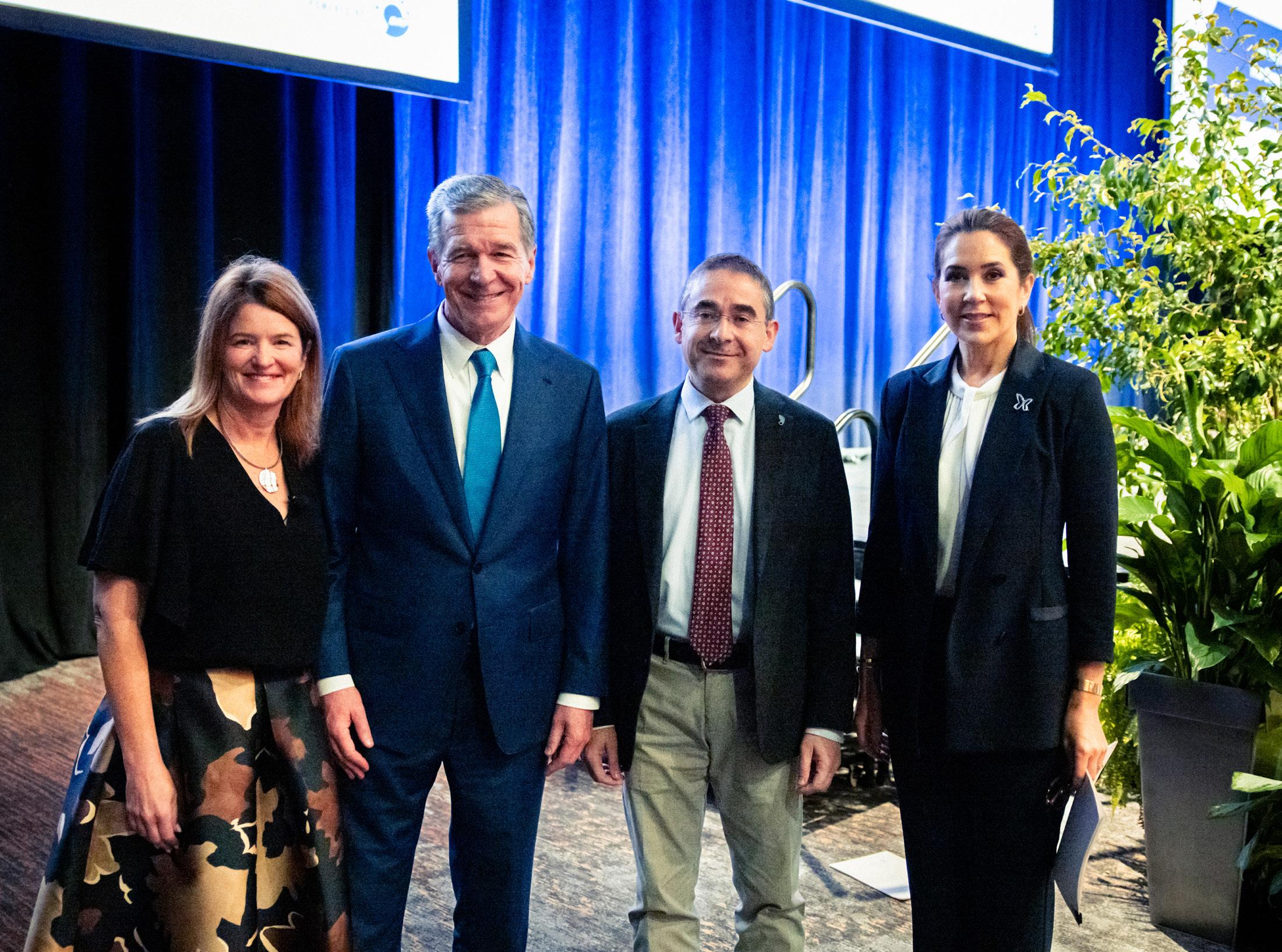
The UNC School of Education hosted the 2023 World Anti-Bullying Forum (WABF), advancing the worldwide fight against bullying, over three days — Oct. 25-27 — in Raleigh. WABF 2023 marked the first time the biennial event was hosted outside of Europe.
UNC School of Education faculty member, Dorothy Espelage, Ph.D., the William C. Friday Distinguished Professor of Education and a global leader in bullying prevention research, organized and co-emceed the event. Over the course of two years, Espelage and a team of UNC School of Education staff members, and graduate and undergraduate students developed the Forum’s programming and secured critical partnerships and sponsorships, including a presenting sponsorship by BRP — a global leader in the world of powersports products.
WABF 2023 drew nearly 600 attendees — researchers, practitioners, policymakers, educators, youth, and additional professionals representing more than 30 countries — who presented at or engaged in more than 70 events, including keynotes, workshops, symposia, paper sessions, a poster session, and more. Educators from 13 North Carolina school districts and Carolina Community Academy were in attendance. Several of those educators, many of whom work in districts that partner with the School, attended with funding provided by the UNC School of Education.





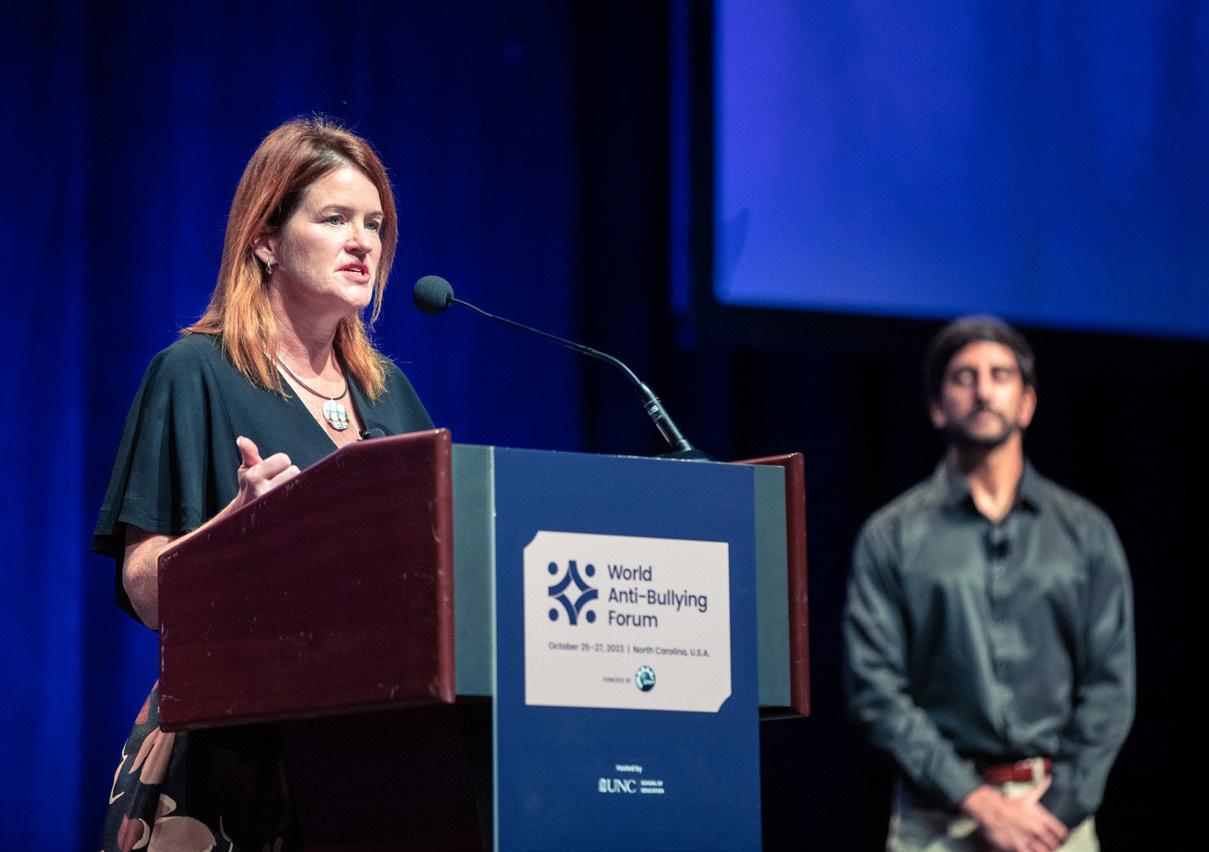

family and community involvement, and JEDI-influenced culture, schools can help prevent suicide
A unique collaboration between researchers from across the UNC School of Education seeks to bring clarity — and critical preventative measures — to an alarming trend seen among Black youth.
STORY BY CLAIRE CUSICK
In recent decades, the rate of suicide among Black boys, children and adolescents, has shown an alarming increase. However, most cultural discourse on suicide prevention is framed around non-Latinx White culture, rendering suicidality in Black youth nearly “invisible.” (Bath and Njoroge, 2021)
Three UNC School of Education professors from across disciplines joined together to better understand why the increase is happening, to bring necessary and overdue visibility to this line of scholarly inquiry, and, most importantly, to protect this most vulnerable group of young people.
Marisa Marraccini, Constance Lindsay, and Dana Griffin, together with a colleague from Texas A&M University and two UNC-Chapel Hill graduate students, published “A Trauma- and Justice, Equity, Diversity and Inclusion (JEDI)-Informed Approach to Suicide Prevention in School: Black Boys’ Lives Matter” in School Psychology Review as a call to action for addressing suicide prevention in Black boys.
That publication, a first step in their collaboration, outlined action steps for school psychologists, calling for a trauma-informed approach to better support Black students. They aren’t stopping there.
Together, they are examining potential missed opportunities for mental
health care and areas of Black youths’ school experiences that may lead to increased risk of suicide. Then, they plan to develop evidence-based guidance that will enable schools professionals to take a more active role in preventing suicide among Black boys.
Each researcher came to this project with motivation for improving systems of care for Black students, who have historically been overlooked in each of their research areas.
Lindsay, Ph.D., who focuses on policies and practices to close racial achievement gaps in education, has found that having an educator of color has the most salient effects for persistently low-income Black boys. Her research found that having a Black teacher for one year in elementary school raised long-run educational attainment for Black male students, especially for those from low-income households.
“I’m always interested in thinking what will make both school and their lives better because we have many years of longitudinal data available here in North Carolina and can answer many interesting questions about students’ lives,” she said.
As a researcher and faculty member who prepares the next generation of school counselors, Griffin, Ph.D., said schools need better approaches when it comes to mental health, especially for marginalized youth.
“School counselors have the capacity and position to address the mental well-being of students,” Griffin said. “For many students, school counselors are the first and sole provider of mental health support.”
Griffin currently leads a five-year U.S. Department of Education-funded project
that is placing school counselors-in-training in rural high-needs schools to help close gaps in mental health care access.
Marraccini, Ph.D., conducts research that aims to prevent adolescent suicide and works to promote child and adolescent mental health in the context of their daily lives, specifically school settings.
She knew from earlier research that school connectedness — when students feel connected to their school community and that adults and peers in school care about their learning and about them as individuals — can have a protective effect against suicide.
For their collective work, Marraccini said the team began by reviewing literature across different ethnic, racial, sexual, and gender identity groups, and looked at school connectedness specifically.
However, in that review, they began to see that a positive relationship with an adult as a protective effect against suicide was relatively unexplored for Black youth. A more comprehensive approach might be required. “When we really begin to disaggregate the data, it becomes less and less clear for Black youth specifically.
“Feeling connected to school is important, but we need to learn more about how school connectedness fits within the broader context for Black youth, including system-level risks such as systemic racism.
- Marisa Marraccini
The three also wrote their conceptual paper to begin to create clarity. What did existing research show? What did it not show?
They examined more deeply how current school practices — staff exhibiting implicit and explicit bias, a culture that encourages nebulous “grit” in the face of systemic racism — intersect with psychological risk factors to prevent or exacerbate suicide risk in Black boys. Because of its complexity, this issue benefits from different research perspectives and methods, Lindsay said.
“We have several colleagues interested in improving schools for students,” she said. “We’re figuring out the best data and the best methods to get a good answer for this problem.”
Lindsay pointed out that a lot of research shows the positive impact of Black youth having a Black teacher, but less about understanding why it does. “This type of collaboration can uncover what’s behind these relationships,” she said.
American schools exist inside American culture and cannot consider themselves exempt from historical oppressions forced upon Black people. American schools legally excluded Black students until 1954, and from that, systemic inequities remain.
The three researchers believe one current threat to Black students may be the persistently high rate of disproportionality regarding discipline and
behaviors for Black youth, a policy area Lindsay’s work has focused on and worked to address. In a recently published article, Lindsay and a colleague found that Black teachers are less likely to refer Black students for discretionary education placements. In previous work, they found the same for harsh exclusionary discipline practices. Compared to non-Latinx White youth, Black students are more than two and a half times as likely to be disciplined in school.
Professionals interpreting behaviors as “acting out” or as so-called “problem behaviors” may be missing cries for help that go unheard.
In her work to prevent suicide, Marraccini wants schools to start further upstream, well before school staff assess a single child’s behavior. How can schools put measures in place to address suicide risk before it occurs?
“There are a lot of pieces coming together that made me curious about whether disproportionate disciplinary referrals are a specifically suiciderelated risk,” she said. “I wondered whether schools are missing opportunities to provide mental health care when they see trauma-related symptoms. Are they misinterpreting those symptoms as ‘behavioral problems’?”
For Griffin, school counselors are the school-based professionals who can provide the upstream care needed in these situations. Counselor education training programs need to teach school counselors best practices for working with and alongside families and communities to address mental health of their youth.
Working closely with families and communities is one of the JEDI-informed frameworks that the authors recommend. JEDI stands for justice, equity, diversity, and inclusion. A trauma- and JEDI-informed approach to preventing, identifying, assessing, and intervening against suicide in Black boys is holistic and considers “the historical and ongoing dehumanization of Black boys to help facilitate a change in the contemporary narrative about Black lives,” Marraccini, Lindsay, and Griffin write. “Instead of taking a deficitoriented approach that places blame on Black boys, a trauma-informed approach fosters compassion and empathy, allowing individuals to see the impact of trauma that may have previously been invisible to them.”
This framework also includes “recognition and nurturing of Black cultural strengths and resilience,” which “aims to enhance protective factors against suicide, eradicate aggressive disciplinary referrals, and lay the groundwork for implementing culturally grounded, school-based suicide prevention efforts focused on supporting Black boys,” they write.
The collaborative solution requires collaboration among researchers with different areas of expertise, practitioners, and community members. Prevention experts must work with school counselors because school counselors know their environment the best. And that partnership must find its way to changing policy.
“This has been one of the best research teams I’ve been a part of,” Griffin said. “We acknowledge the expertise we all bring to the table. These are the type of people that I love to work with. They’re passionate about it and are also open to suggestions and hearing other perspectives. And I think that makes the work we are doing even stronger — a true interdisciplinary approach to suicide prevention in Black youth.”
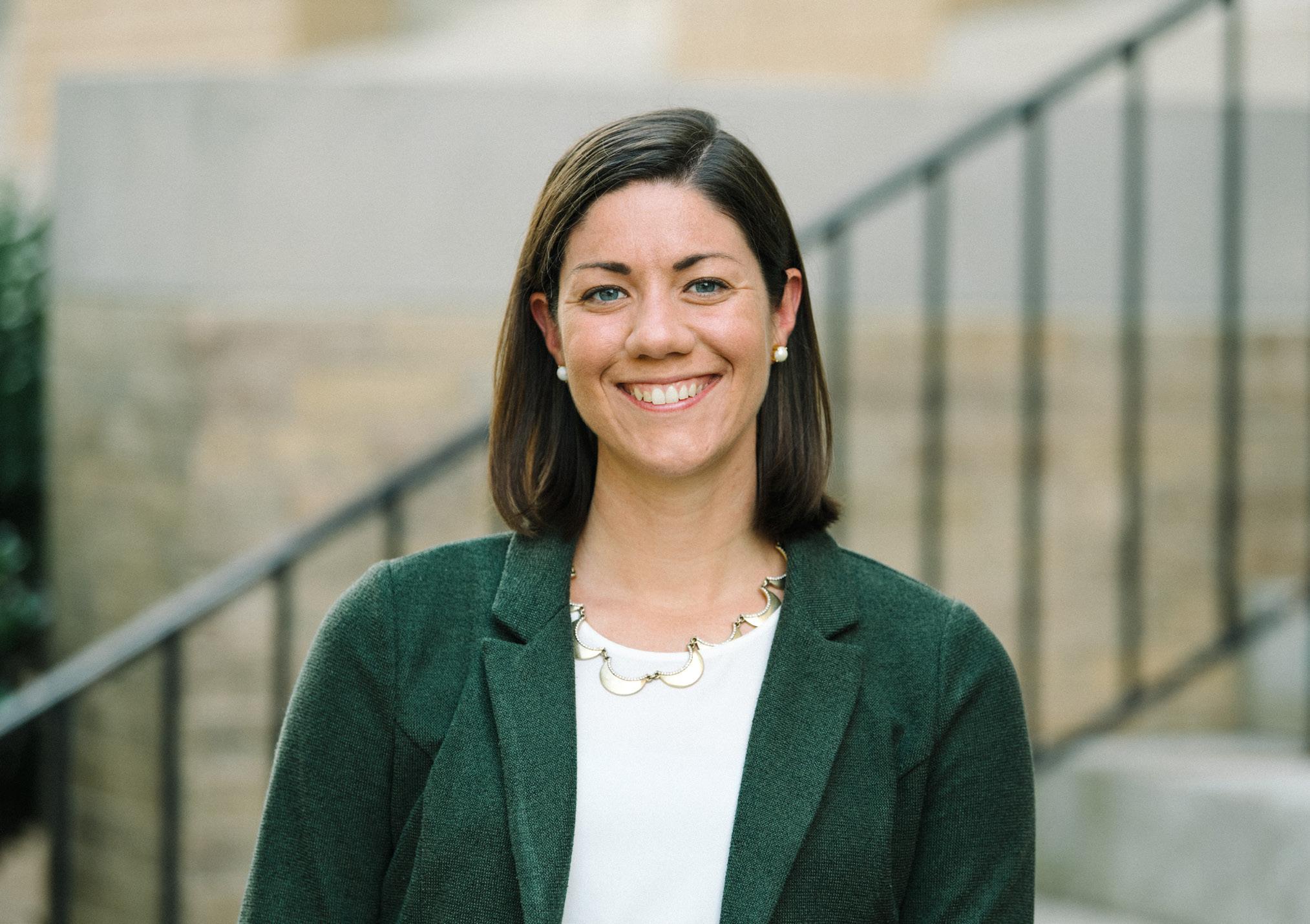
“How do flowers bloom?”
“How do we have a heart?”
To adults, these questions sound simple, maybe even silly. To children, they unlock the world, representing the beginnings of one of the most crucial developments in childhood: the growth of language. For faculty member Kathryn Leech, Ph.D., that development forms the building blocks of literacy.
In her work, Leech is committed to uncovering the power behind parentchild interactions, focusing on language and literacy development in Pre-K children and how they develop these foundations socially, primarily in a family or home context.
According to Leech, activities such as mealtime, playtime, and bedtime — normal family routines — are pivotal moments for language acquisition. She continues to investigate and work with families to improve these interactions.
As the recent recipient of the National Science Foundation’s Faculty Early Career Development (CAREER) Program Award, Leech will further her research to optimize parent-child interactions in scientific learning through book reading, a common context that exposes and initiates conversation between parents and children. And she will expand this work into rural communities.
Her work has helped advance an interdisciplinary approach to the field, emphasizing that it is not just decoding text and comprehension that impacts literacy. It’s the everyday interactions that caregivers have with children that help build a foundation for future reading success.
“I am really interested in these questions about what promotes language development,” she said. “How can we work with parents to encourage them to promote their child’s language development?”
Leech’s research methods typically involve her and her team members directly observing families in lab and home environments, gathering a language sample of a child and parent during an activity like interacting with a toy or reading a book. This transcript is coded, and language is categorized based on certain influential factors for the child’s language learning. From there, the researchers design interventions, such as encouraging questions and providing additional conversation prompts for caregivers, to measure the effectiveness of those interactions in language development.
One of the main factors Leech measures in these conversations is the presence of decontextualized language, a form of language that is not grounded in the present. These conversations can look like the parent referencing something that happened in the past or something that will happen in the future, as well as more complex topics, including explanations about how things work.
“What we found in our work is that parents’ questions directed to children support child language development because they encourage the child to talk more,” she explained. “So when the parent asks something like ‘Why were you so sad?’, that opens up the conversation, and the child answers with more than one word and encourages back-and-forth conversation, an experience we know is very helpful for language learning during this age.”

Sawyer releases the third edition of book analyzing creative thinking and collaboration, launches new podcast
Faculty member Keith Sawyer, Ph.D., co-authored the third edition of “Explaining Creativity: The Science of Human Innovation,” published by Oxford University Press in January 2024. This comprehensive textbook, co-authored with Danah Henriksen, Ph.D., of Arizona State University, delves into the cognitive processes, practical applications, and social and cultural factors that influence creativity. Additionally, in spring 2024, Sawyer launched a podcast titled, “The Science of Creativity with Dr. Keith Sawyer.” The podcast highlights the latest psychological research and insights about creativity. Episodes of the podcast are available on all platforms, including Spotify, Apple Podcasts, and YouTube.
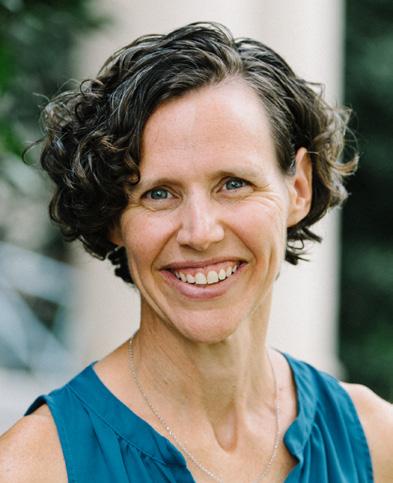

Faculty members Kara Hume, Ph.D., and Brian Boyd, Ph.D., had their research findings shortlisted in the 2022 Interagency Autism Coordinating Committee (IACC) Summary of Advances. Each year, the IACC selects the top 20 autism research advances, and for the 2022 summary, released in December 2023, four of Hume and Boyd’s publications were recognized across three of the seven categories.

Study co-led by Lindsay finds Black male students with Black teachers less likely to be identified for special education
In a study published in the American Educational Research Journal, faculty member Constance Lindsay, Ph.D., and Cassandra Hart, Ph.D., from the University of California, Davis, found that Black male elementary students who are matched with Black teachers are less likely to be identified for special education services. The study utilized statewide administrative data from North Carolina, analyzing more than 540,000 observations of Black children in grades 1 through 4 and their assigned teachers from the 2008–09 to 2012–13 school years.
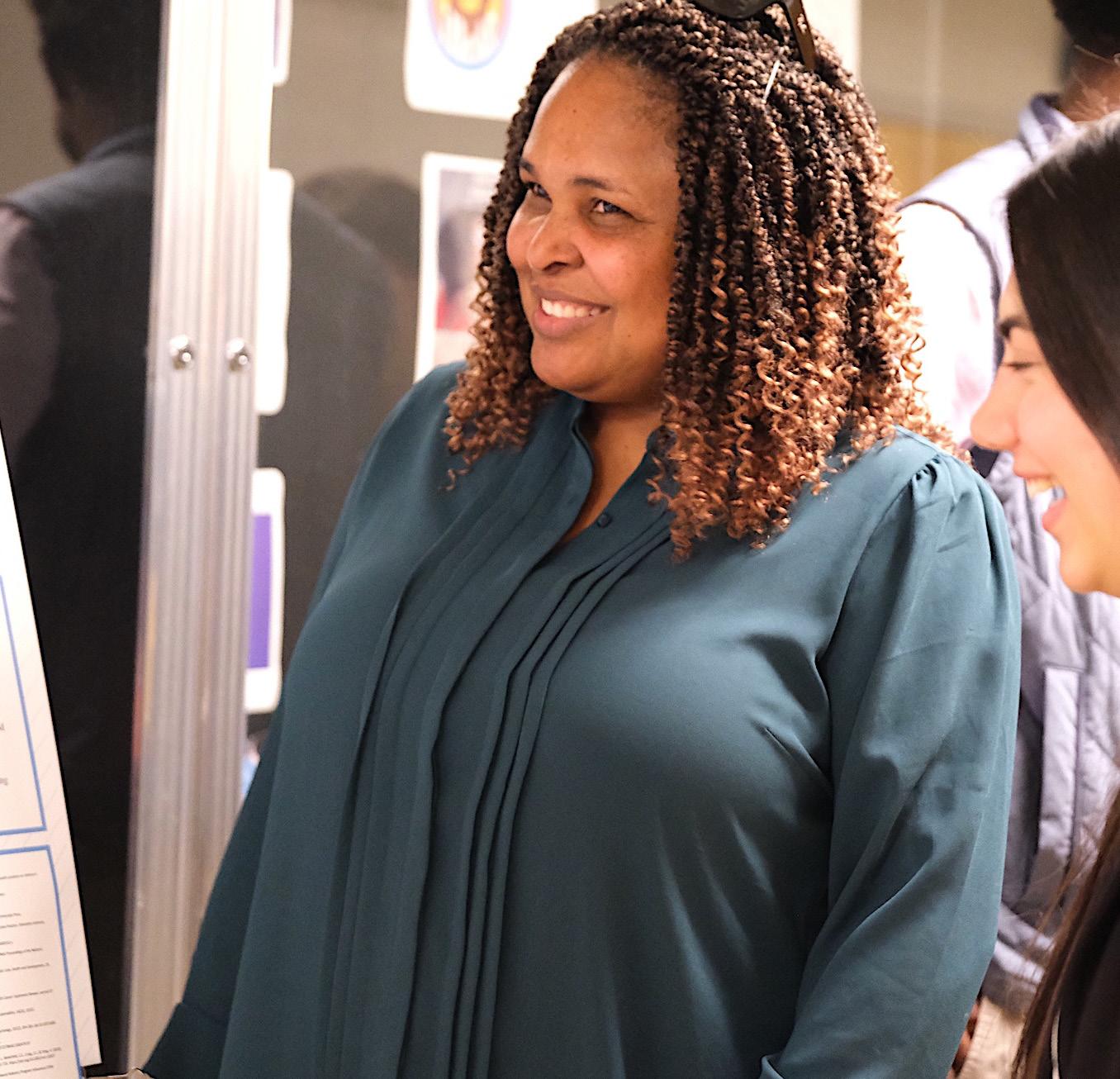
The UNC School of Education boasts a distinguished faculty, ranging from promising young scholars to leading researchers and visionary experts who are training the next generation of educators. Our faculty members are dedicated to advancing knowledge, fostering innovation, and empowering future leaders in education. They are frequently sought after to contribute to educational discussions — in the media, through extensive collaborative projects, as advisors to government leaders, in prestigious academic journals, and beyond.
Our faculty members in the UNC School of Education are distinguished in their areas of research, and we are able to recognize some of those faculty members with the distinction of either endowed professor or scholar.

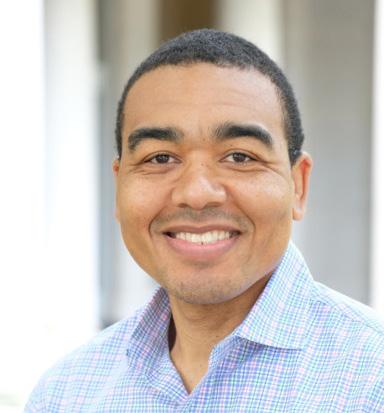


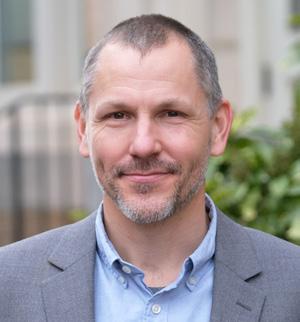

Matthew Bernacki Kinnard White Faculty Scholar in Education



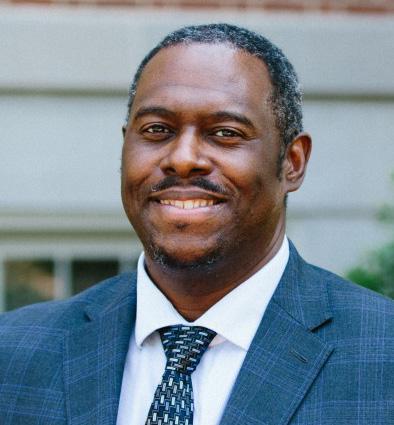
Brian Boyd
William C. Friday Distinguished Professor of Education

Lora Cohen-Vogel
Frank A. Daniels Jr. Professor
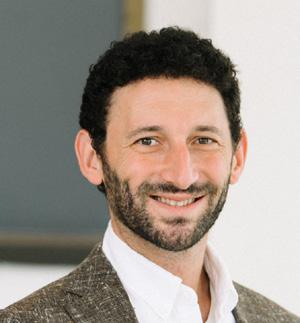
Dionne Cross Francis
Joseph R. Neikirk Professor

Thurston “Thad” Domina
Robert Wendell Eaves Sr. Distinguished Professor in Educational Leadership
Nianbo Dong
Guy B. Phillips Professor in Education
Dorothy L. Espelage
William C. Friday Distinguished Professor of Education
Jeffrey A. Greene
McMichael Professor
Jill V. Hamm
William C. Friday Distinguished Professor of Education
Sherick A. Hughes
Samuel M. Holton
Distinguished Professor
Kara Hume
Richard “Dick” Coop Faculty Scholar in Education
Ethan Hutt
Gary Stuck Faculty Scholar in Education
Marisa Marraccini
Donald & Justeen Tarbet Faculty Scholar
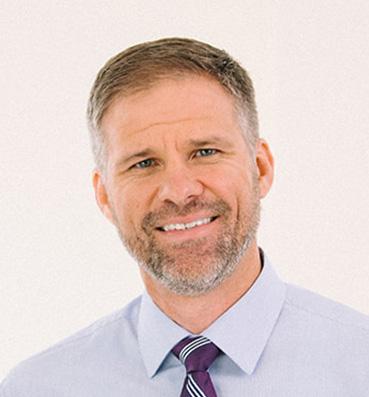
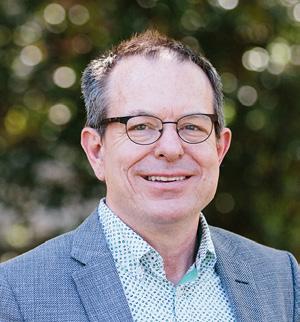
Troy D. Sadler
Thomas James Distinguished Professor of Experiential Learning
R. Keith Sawyer
Morgan Distinguished Professor of Educational Innovations
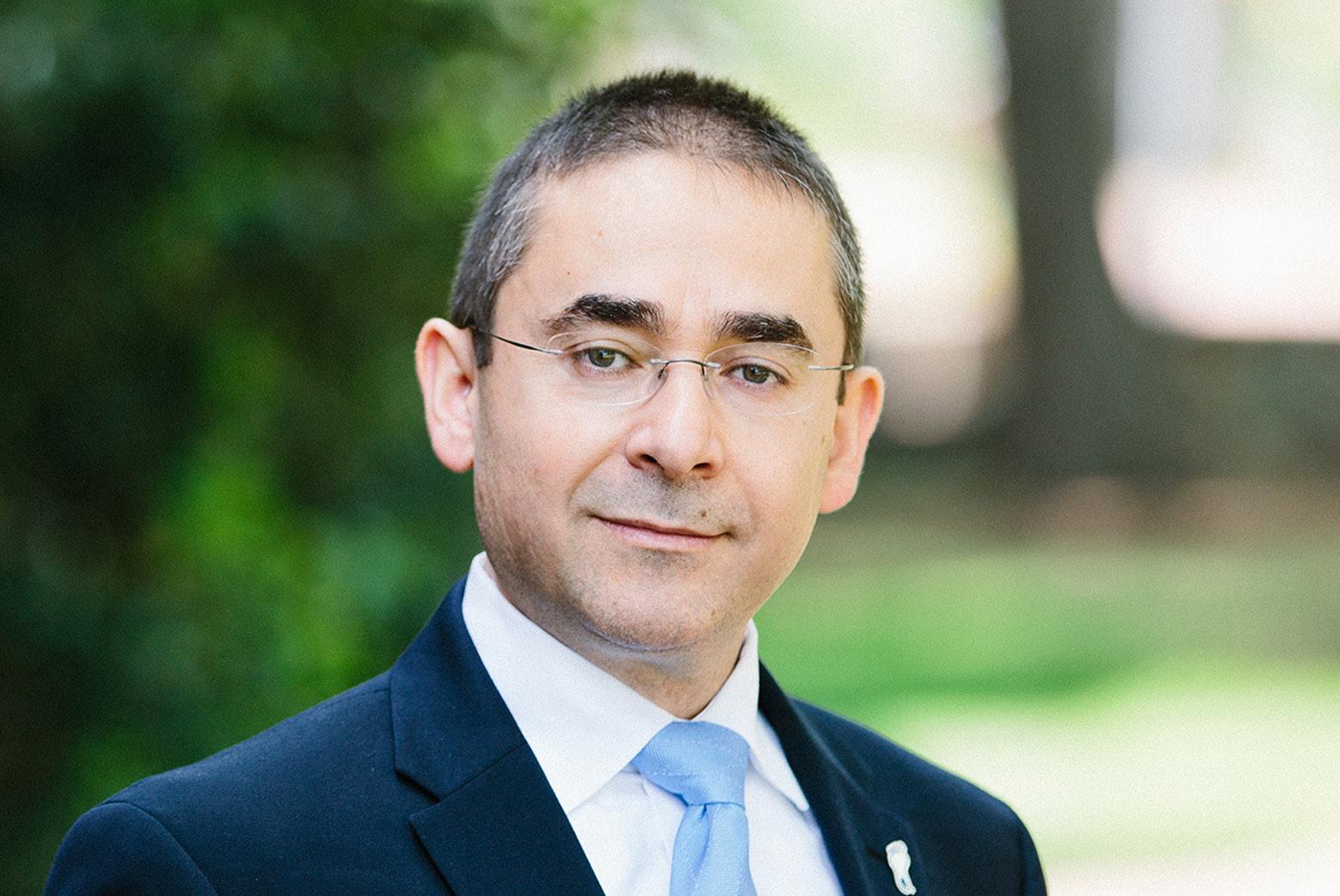
When Fouad Abd-El-Khalick, Ph.D., was introduced as dean of the UNC School of Education at an April 26, 2016, event, he told attendees that he would be knocking on their door, seeking opportunities to collaborate.
Eight years later, as Abd-El-Khalick departed Carolina to become the next provost and senior vice chancellor for academic affairs at the University of Massachusetts Amherst, the successes of the School under his leadership are all marked by collaboration — within Peabody Hall, across the UNC-Chapel Hill campus, with North Carolina school districts and governmental agencies, with a range of organizations in and beyond education, other colleges and universities, and more.
“Much has happened at our School of Education in the past eight years, collective achievements that I hope will continue to define the School and Carolina in their work to serve learners, educators, and the communities in which they live,” said Abd-El-Khalick. “I believe our work has focused on and added to the ‘greater good.’”
When Abd-El-Khalick arrived at Carolina in 2016, the School ranked No. 35 overall in U.S. News & World Report’s annual list of best schools of education. The School’s annual research expenditure was $5.7 million — or $127,000 per faculty member. One of the University’s oldest professional schools, the School boasted 20,000+ living alumni.
Near immediately upon his arrival, Abd-El-Khalick launched an inclusive process to develop a new strategic plan, a new brand message, guiding pillars, and revitalized website — all to convey the School’s values, commitments, and ambitions.
“It was apparent upon my arrival and remains true as I leave, the people in the UNC School of Education propel the world,” Abd-El-Khalick said. “This is a community of simply incredible faculty, students, staff, alumni, supporters, and more committed to education, to schools, teachers, counselors, principals, and always to PK-12 students.”
Early in his tenure, Abd-El-Khalick saw opportunities to draw upon
Fouad Abd-El-Khalick departed Carolina June 30, 2024, to become provost at UMass Amherst, leaving a legacy of fostering high-impact collaborations on the Carolina campus, in North Carolina, and beyond.
faculty strengths and expand research operations. He established an associate dean for research and faculty development position, appointing Jill Hamm, who is now interim dean, and invested in pre- and post-award grant staff members and support. He invested in collaboration to leverage new and existing faculty talent and deliver on the School’s research mission.
By 2023, the School had nearly quadrupled its total research expenditure to $22.2 million and its per-faculty expenditure to $529,000, expanding the School’s scholarly leadership and impact through cutting-edge research and innovation.
Drawing upon exceptional faculty expertise, Abd-El-Khalick partnered with campus, state, and world leaders to create and sustain public conversations critical to educational research, leadership, and school safety and well-being. Large-scale events included:
In 2017, in collaboration with schools across the UNC campus, the School hosted Toward a Carolina Improvement Science Initiative: A Lightning Symposium, convening faculty, staff, and graduate students engaged in research on improvement at scale for a day-long event.
Also in 2017, the School led the state-wide Carolina Educational Leadership Summit, bringing together a range of stakeholders to identify and discuss existing and emerging challenges. Education officials from across the political aisle and from across the state worked to broker partnerships, promote innovation, and strengthen leadership.
In 2018, the School — with UNC’s schools of social work, medicine, and public health — hosted the Summit on School Safety and Well-being, enabling extensive discussions focused on how we can keep students safe between students, parents, teachers, school leaders, school health and mental health professionals, school safety resource personnel, legislators, representatives from key state agencies, clinicians and UNC researchers, as well as state, national, and international leading experts.
In 2023, the School hosted the World Anti-Bullying Forum — the first time the biennial event was held outside of Europe — drawing nearly 600 attendees, including researchers, practitioners, policymakers,
educators, youth, and additional professionals representing more than 30 countries who presented at or engaged in more than 70 events, including keynotes, workshops, symposia, paper sessions, a poster session, and more.
Abd-El-Khalick also led a faculty hiring campaign intent on attracting the best, brightest, and most diverse faculty to the School. Between 2016 and 2024, the School attracted and welcomed 37 new faculty members — rising stars and established scholarly leaders whose expertise spans disciplines — to an already talent-rich faculty. During Abd-El-Khalick’s tenure, faculty racial and ethnic diversity increased from 22% to a historical high of 32%. Simultaneously, the School expanded its staff from 38 to 63, increasing its professional bandwidth in support of the mission and in expanding research, teaching, service, public engagement, and development efforts.
In addition to fostering collaborations that advanced important research with wide-ranging implications, Abd-El-Khalick also created strong partnerships to immediately serve PK-12 students, aspiring education professionals, educators, and districts.
The School launched online and HyFlex learning spaces to meet the needs of today’s learners and working educators, and with the College of Education at NC State University, the School created Pathway to Practice NC — an online program that enables the state’s residency license teachers to pursue full licensure at their own pace — to help address shortages of highly qualified teachers. To date, nearly 500 residency license teachers across 84 North Carolina school districts have enrolled in Pathway to Practice NC.
The School also delivered its Master in School Administration and Master of Education for Experienced Teachers in Early Childhood Intervention and Family Support programs as HyFlex programs, offering in-person and virtual options and increasing access for working professionals.
Recently, the School also announced an online Ed.D. program focused on organizational learning and leadership, which will provide working professionals from a range of sectors and organizations with knowledge, skills, and experiences to take a human-centered approach to leadership, helping to deliver upon their organization’s goals and mission.
With substantial federal, state, and philanthropic funding, the School has also partnered with inner-city and rural school districts to bolster the preparation of North Carolina’s most effective teachers, school leaders, and critical wraparound service professionals, including school counselors, through established and innovative initiatives that include the North
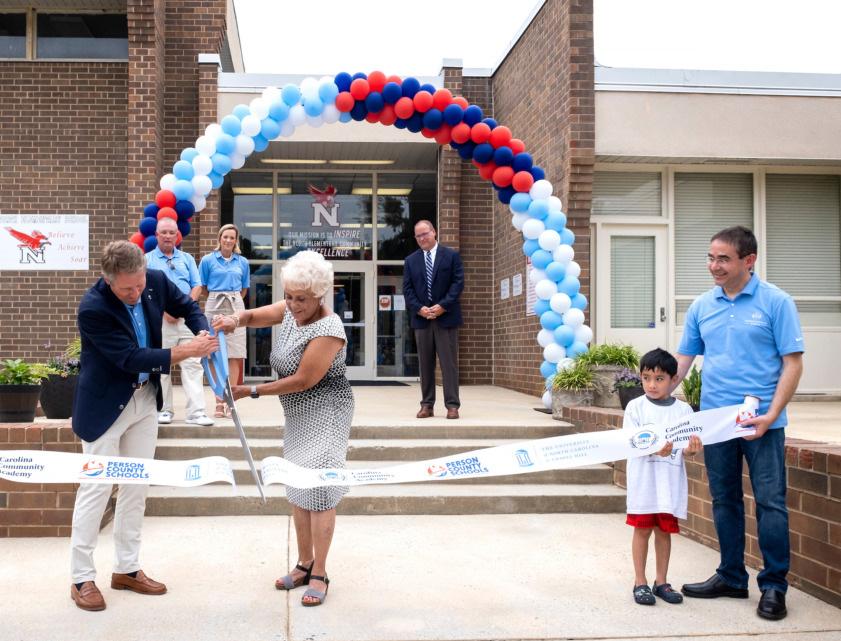
Carolina Teaching Fellows, DREAM, UNC LEADS, Fellows for Inclusive Excellence, and Helping Heels.
In 2022, the School led campus efforts in creating Carolina Community Academy, UNC-Chapel Hill’s K–2 laboratory school, in partnership with Person County Schools. The School continues to build an ever-growing cross-campus coalition of schools, academic and service units, and centers to bring Carolina’s full bandwidth to serve students, families, and the community across Carolina Community Academy and Roxboro.
In addition to securing support for research and aspiring educators, Abd-El-Khalick also led efforts to reimagine Peabody Hall, home of the School, and its spaces. The lobby, now the Tarver Entryway, provides natural light and collaborative space for students and visitors. Stateof-the-art, agile teaching and learning spaces enable students to join classes in Chapel Hill no matter their location, and renovated research and administrative spaces — including the new Research Commons — accommodate the School’s growing research enterprise.
Over the course of Abd-El-Khalick’s time at UNC-Chapel Hill, the School raised $26.8 million as part of the Campaign for Carolina (2014-21) and raised a record $8.2 million during fiscal year 2022, nearly doubling the previous best fundraising year ever.
After departing Carolina on June 30, 2024, Abd-El-Khalick left a UNC School of Education that is talent-rich, programmatically robust, and financially sound and, most importantly, a community of scholars, students, and professionals committed to advancing education in myriad ways and a number of programs and partnerships already delivering on their high potential impact. Abd-El-Khalick said he looks forward to watching the School’s progress from his new professional home in Massachusetts.
“
There is great momentum at the School. Serving as dean and working with so many good people to enable that momentum and success has been the highlight of my professional life thus far. My time at Carolina has been an inspiring reminder that, together, we propel the world.
- Fouad Abd-El-Khalick


As the 2024–25 academic year begins, five new faculty members join the UNC School of Education’s academic community, collectively contributing an array of experience, expertise, and high-impact research activities across multiple areas of education. They will work closely with students across degree levels and programs.

Damico joins the School as a clinical associate professor and program director of the Master of Arts in Teaching program. Prior to this role, she served as an associate professor at the University of Central Florida. Damico’s research focuses on identifying gaps in educator preparation and exploring digital technologies that support all learners in becoming critical and globally engaged citizens. Her work includes analyzing multimodal tools for reading, writing, and assessment; developing ethical citizenship through digital mindfulness; and incorporating critical social media literacies.


Hindman joins the School as a professor in both the Applied Developmental Science and Special Education doctoral program concentration and the Master of Education for Experienced Teachers program. Before Carolina, Hindman was a professor of early childhood education and educational psychology at Temple University. Her research aims to support young children at risk for reading difficulties by improving their access to high-quality, culturally relevant instruction at school, home, and within the community. Her methodologies include secondary data analysis, observational research in a variety of settings, and designing and evaluating interventions.
Jensen joins the School as an assistant professor within the Applied Developmental Science and Special Education doctoral concentration, as well as in the Human Development and Family Science and School Psychology programs. Prior to joining the School, Jensen served as a faculty member at the UNC School of Social Work. Jensen specializes in promoting youth development and well-being during family structural transitions, preventing maltreatment among military-connected youth and their families, and strengthening youth-serving systems. With foundational training in developmental science, family science, and clinical social work, he is interested in the development and sustainable implementation of health-promoting and evidence-informed interventions (programs, policies, practices) within youth-serving systems, leveraging advances in implementation science.
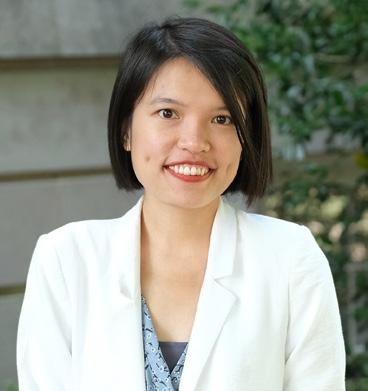
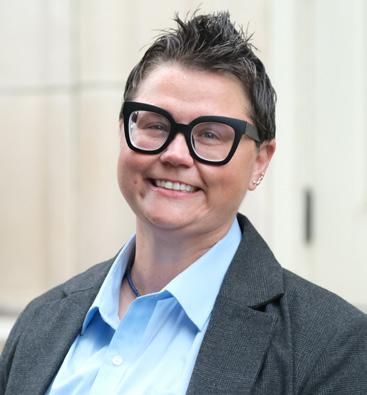
Nguyen joins the School as an assistant professor in the Learning Sciences and Psychological Studies doctoral concentration and the Master of Arts in Educational Innovation, Technology, and Entrepreneurship program. Before joining the School, Nguyen held a faculty position in Instructional Technology and Learning Sciences at Utah State University. Nguyen’s current research has a dual focus on design and analytics. From a design perspective, she collaborates with students, educators, and community organizations to ensure that the design of technologies is grounded in learners’ experiences. She applies learning analytics methods to investigate how people construct knowledge in both informal and formal learning environments, whether collaborating with others or interacting with AI technologies.
Shelton joins the School as an associate professor within the Culture, Curriculum, and Teacher
Education doctoral concentration. Previously, she was an associate professor of qualitative research at the University of Alabama. In her research, she explores LGBTQ+ issues in educational settings, particularly in socio-politically restrictive contexts. Specializing in interview- and focus groupbased research, Shelton’s research is often informed by feminist and queer theories, focusing on methodological concepts such as reflexivity, informed consent, bias, and subjectivity.
A recently published book co-authored by Ethan Hutt, Ph.D., Gary Stuck Faculty Scholar in Education, examines the historical origins and impacts of today’s academic assessment system, focusing on grades, testing, and transcripts.
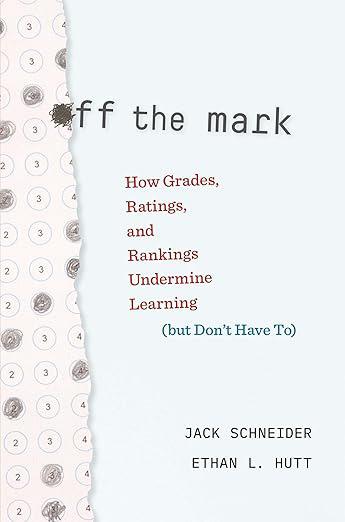
In the book, “Off the Mark: How Grades, Ratings, and Rankings Undermine Learning (but Don’t Have To),” published by Harvard University Press, Hutt and co-author Jack Schneider, Ph.D., an associate professor in the School of Education at the University of Massachusetts Lowell, draw on their expertise as historians of education to explore how grading systems can work to better assess what a student learns and can do — with the goal of helping educators cultivate highquality learning experiences.
Hutt conducts research centered around the quantitative measures utilized to describe, define, and evaluate American schools. His work also seeks to understand where these metrics come from, how they became central to the work of schools, and the effects they have on how people think about what schools do and how well they do it.
In the following Q&A, Hutt discusses the book’s objective and proposes methods to enhance the grading system for a more accurate evaluation of a student’s knowledge and abilities — while promoting lifelong learning.
motivated you to explore this topic and dedicate a full book to it? And why now?
We wanted to write a book on grading, testing, and transcripts because they are ubiquitous in schooling at all levels. Grading and assessment are an important part of the lived experience for both students and teachers. While teachers may think about sharing favorite texts and fostering learning, they also spend a great deal of time on grading and communicating with parents. These assessment practices deeply shape teaching and learning, so we felt it was important to critically examine them.
Our motivation is to improve our education system so that it facilitates learning. The pandemic especially has led to rethinking many aspects of schooling. It seems like the perfect time to critically examine something so fundamental as how we assess, communicate, and memorialize student learning. We always need to grapple with these core pieces of education, and a book seems like an important way to spur that conversation.
Our book aims to spur that kind of critical reflection on these assessment tools that have become accepted as just part of education.
are grades, ratings, and rankings hindering learning and creating inequality now?
A major challenge is that grades, tests, and transcripts have become the focal point of our system, rather than a supporting tool. We want these technologies to simultaneously motivate students, focus student attention, and communicate achievements, but the pursuit of high marks has swamped the learning itself. There is an unhealthy intensity around grades versus the work behind them. This imbalance strains the system and teachers feel it when students frequently ask about test material or push to regrade assignments.

The disconnect is that grades and tests have become the focus rather than signifying learning. When accumulating points and scores takes priority over acquiring knowledge, something has gone wrong. We don’t argue for eliminating assessment. That’s unrealistic. Teachers need to evaluate and communicate about the quality of student work, but we can better align our goals for actual learning and motivation with our need to give and record evaluations of that learning.
The solution is not getting rid of grades but restoring balance — keeping the motivation while keeping learning at the forefront.
How do you envision your book contributing to the ongoing conversation about education policies related to student support and assessing student progress?
Our goal is to spark a conversation that allows for sharp thinking about how we can improve our schools and better serve our students. In my personal experience, understanding the origins and evolution of something helps me grasp when its original purpose has become misaligned with our current practices over time. Examining this history allows us to thoughtfully assess what is still working, what needs updating, and what new approaches might serve us better today.
I think providing history in some context can be liberating. It can help people understand why we do things the way we do and then open space for having conversations. We want to invite people to think about how we can accomplish meaningful goals. For example, “How can we create assignments that have real-world value and meaning for students?” and “How can we lower the stress levels by allowing students multiple attempts at assignments, since we know they start at different levels?”
As someone with family members who are educators, I envision teachers gathering over the summer as they prepare for the new school year. They could have conversations framed with inviting language that positions them as experts on their schools, students, and classrooms. With the proper tools and terminology, they can explore how to handle challenging moments productively.
What do you hope readers take away from the book, and what impact do you hope it has on education broadly?
I hope that the book provides people with a language for talking about this challenge in a way that doesn’t simplify it and doesn’t force a solution. If we aim to balance the system, it’s important to make things better for our students and teachers. It’s going to be a collective and collaborative effort, and people at every level need to think through all aspects of assessments and student success measures.
The best thing that I’m hoping will come from the book is that we will have provided a language to have deep and meaningful conversations around this by identifying the purposes that these assessment technologies serve.
For 20+ years, Thurston “Thad” Domina, Ph.D., the Robert Wendell Eaves Sr. Distinguished Professor in Educational Leadership, has studied every level of education, utilizing various analytical tools to understand the impact of families, schools, and educational experiences on child development and transition into adulthood. His work continues to report on educational disparities and focuses on educational policies and strategies that promote the development of more equitable communities.

A new book — “Schooled and Sorted: How Educational Categories Create Inequality” — co-authored by Domina and Andrew M. Penner, Ph.D., a professor of sociology at the University of California, Irvine, and Emily K. Penner, Ph.D., an associate professor of education at the University of California, Irvine, explores disparities created by a ubiquitous practice in education — categorization. In “Schooled and Sorted,” Domina and his co-authors delve into the processes of educational categorization to explain the complex relationship between education and social inequality — and to identify strategies that can help build more just educational systems.
Following is a Q&A with Domina about the new book — its origins, the harms categorization can cause beyond schooling (and graduation), and more.
What was the impetus for this book? Was there something you saw in your research or in your peers’ research that made this so necessary?
One day, at least 10 years ago, I got a phone call out of the blue from a reporter who had learned about a school that had begun giving students ID cards that were color-coded based on their scores on end-of-grade tests. Students who scored in the highest category on all of their tests got platinum IDs; students who scored in the top two categories on all of their tests got gold IDs; everybody else got white IDs. The school required students to wear these IDs all day long, and the school even created express lunch lines and other goodies to reward students with platinum and gold IDs.
The school’s principal thought he’d come up with a way to give students an incentive to succeed academically – something like the varsity letters that athletes wear on their class jackets. But I worried that those color-coded IDs would create inequalities that would follow kids through their whole lives. I eventually got the chance to study the school, and it turned out that I was right to worry. The kids who got low-status white IDs based on just a single missed question on a test looked worse on a wide range of later outcomes than nearly identical kids who had just eked out a gold ID. And this difference was particularly pronounced for kids of color and kids from low-income families.
That story got me thinking hard about educational categories, which made me realize that much of the work that we do around education and inequality is all about educational categories — classrooms, honor rolls, academic tracks, credentials, and degrees — and the way those categories interact with broader social categories like race and gender. In the book, we argue that understanding those categorical processes is crucial for understanding education as a social institution. We think of schools as places for teaching and learning — and they are. But that’s not all they are. They can’t operate without building categories, and we can’t understand the link between school and social inequality without looking closely at those categories.

Categorization is seemingly inextricable from education. How might a school district leader begin to make existing categorizations more equitable?
We argue that the first step is just taking a careful, self-reflexive look at the categories schools create. It’s hard to imagine schools without categories. But if we think carefully about our educational categories and what they’re doing, we open up the possibility to build better and more equitable schools.
There aren’t quick fixes here. It takes an inclusive, community effort to see the harms associated with existing categories and to imagine newer, more equitable educational categories. But here’s one rule of thumb that strikes me as broadly useful: “Low scope” categories — where students are sorted and resorted into different educational environments repeatedly over the course of a day, a school year, or an educational career — are generally more equitable that “higher scope” categories that stick with students. An example of a low-scope sorting system is a school that creates opportunities for students to pick their own courses at several points in an academic year. Such a system allows students to sort and re-sort themselves, giving them the chance to build diverse webs of social connections in the school. Successful low-scope sorting systems provide students with multiple pathways to educational success that respond to their diverse needs and interests.
Are there successes you can point to when it comes to recategorization or to doing away with a particular categorization?
In the late 19th century, when American educators were building some of the world’s first freely accessible mass systems of education, many cities operated what were called “monitorial schools.” In these schools, a hundred or more students were arranged in a large room, organized in rows based on their mastery of basic reading and arithmetic skills. Kids started at the back row, and if they demonstrated academic competency, they could move up, row by row, their skills improved. Many students never made it out of the back row, others might slide back if their peers progressed faster than them. But ultimately, if students made it to the front of the room, they could graduate to the position of “monitor,” where they were tasked with helping the students seated in rows.
We don’t have monitorial schools anymore. At some point, that intensely competitive model of education was replaced by the age-graded schools we know today –where 6-year-olds are grouped together in 1st grade, 7-year-olds are grouped together in 2nd grade, and so on. This system strikes me as far more equitable. Even though the 2nd graders get more advanced instruction than the 1st graders, the system has mobility built into it — as you age, you advance. I also like that it’s built around a student characteristic — age — that cuts across race, gender, social class, religion, and so many other social fault lines.
I like thinking about the age-graded school because it’s a reminder that we can — and do — create equitable categories in some parts of our educational system. I hope “Schooled and Sorted” both helps and challenges educators to build on that success in their contemporary practice.

Faculty member Dorothy Espelage, Ph.D., William C. Friday Distinguished Professor of Education and a foremost expert on bullying and youth wellbeing, received the 2023 BRNET-WABF Career Achievement Award during the 2023 World Anti-Bullying Forum’s opening night dinner on Wednesday, Oct. 25, at the Raleigh Convention Center.
The award, presented by the Bullying Research Network (BRNET) and the World Anti-Bullying Forum (WABF), honored Espelage for her pioneering empirical research contributions, her leadership and support of international collaborations, and her dedication to advocacy to prevent bullying and promote safe and positive school climates.

Faculty member Cheryl Mason Bolick, Ph.D., is part of a cross-campus team, led by the UNC African Studies Center, providing elementary school teachers with classroom materials that aim to increase students’ understanding of contemporary Africa. Bolick provided curriculum expertise for the project’s first lessons that focus on Senegal. Lessons on Ghana are forthcoming.
To access the free lessons, visit ed.unc.edu/teachingafrica.

In April 2024, faculty member Kristin Papoi, Ph.D. received the UNC Office of the Provost Engaged Scholarship Award for Engaged Teaching, one of Carolina’s annual Public Service Awards. Papoi was honored for her work in preparing Master of Arts in Teaching students through the DREAM program, partnering with Durham Public Schools, and strengthening connections between the School and the broader Carolina community. This award recognizes faculty at UNC-Chapel Hill for their exceptional commitment to public service and engaged scholarship.

Faculty members Todd Cherner, Ph.D., and Yuliana Rodriguez, Ph.D., were honored as the 2022-23 recipients of the School’s Teaching Excellence Awards, recognized for their commitment to students and the student experience.
Cherner — a clinical associate professor who has led the Master of Arts in Educational Innovation, Technology, and Entrepreneurship (MEITE) program since 2019 — was praised by nominators for going “above and beyond to curate an engaging learning experience both inside and outside the classroom.”
Rodriguez, a clinical associate professor, teaches courses in the Human Development and Family Science (HDFS) program. Rodriguez’s nominators praised her engaging style, inclusive approach, deep care for her students, and the “unmatched” enthusiasm she brings to HDFS classes and the material she teaches. One nominator called Rodriguez “a vibrant presence” inside the classroom.

On April 22, 2024, Brian Boyd, Ph.D., William C. Friday Distinguished Professor of Education at the UNC School of Education, was announced as director of the UNC Frank Porter Graham Child Development Institute. Boyd had served as the Institute’s interim director since February 2023. As FPG director, Boyd provides administrative oversight and collaborates with the institute’s leadership team, research groups, and staff to advance its research agenda.
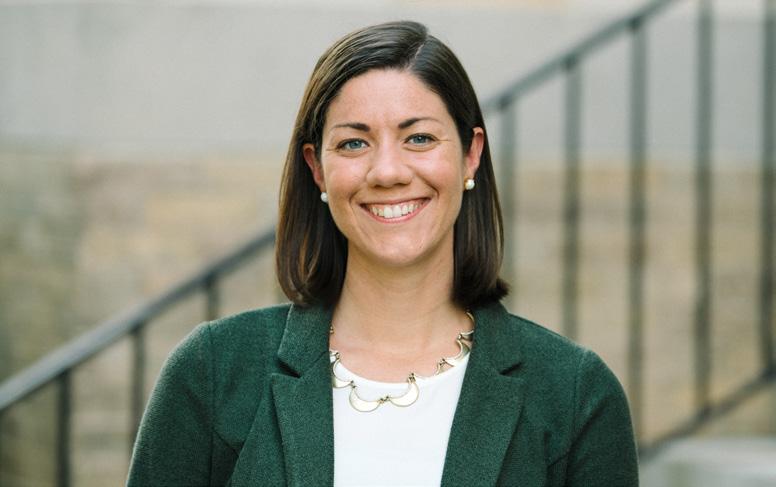
receives CAREER Award for research on parent-child
In spring 2024, Kathryn Leech, Ph.D., was named a recipient of a National Science Foundation (NSF) CAREER Award, which will support her research on the role of picture books in promoting parent-child scientific conversation and learning. The CAREER Award, part of the NSF’s Faculty Early Career Development Program, is a prestigious grant offered to support entry-career faculty members who have the potential to serve as academic role models in research and education.
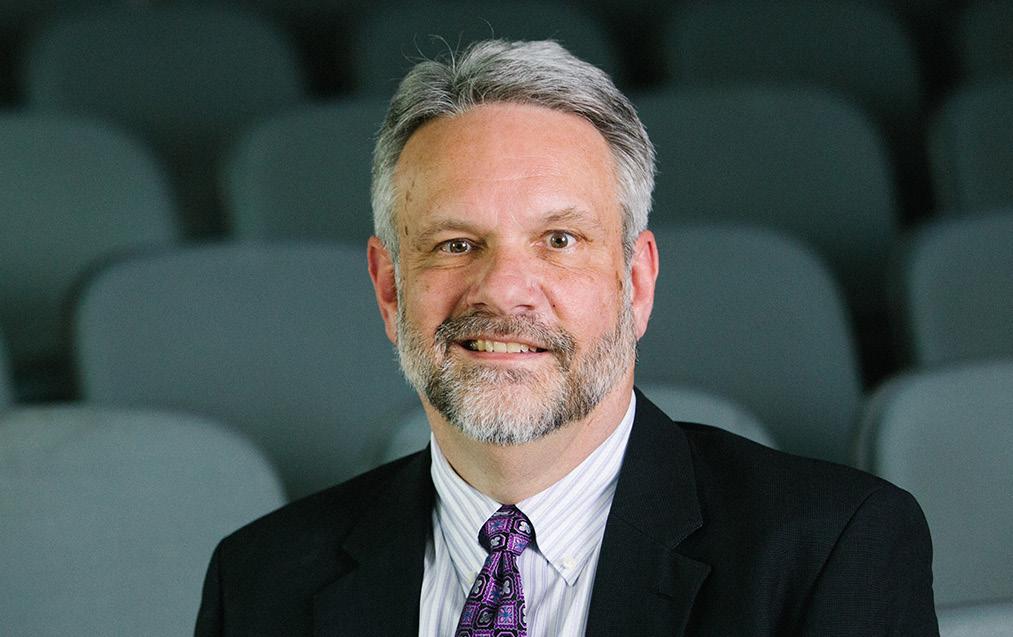
Retired faculty member Gregory Cizek, Ph.D., was awarded the 2024 E. F. Lindquist Award by AERA and ACT for his contributions to testing and measurement research. Cizek, a national authority in educational measurement, received the award at AERA’s annual meeting in Philadelphia. The Lindquist Award honors outstanding research in testing and measurement, recognizing a body of empirical, theoretical, or integrative work. Cizek retired as the Guy B. Phillips Professor in 2023 after more than 30 years of research in applied assessment, specializing in validity, standard setting, and test security.

Research team including Griffin secures a $4 million grant to advance college readiness and implement mindfulness programming
Dana Griffin, Ph.D., is part of a team awarded $4 million from the U.S. Department of Education to assess the Be CALM (Cool, Attentive, Logical, and Mature) mindfulness-based social-emotional learning (SEL) program. The project will implement a multi-tiered approach in early college high schools across rural North Carolina, focusing on traditionally underrepresented students.

co-edits
Diana Lys, Ed.D., assistant dean for educator preparation and accreditation at the UNC School of Education, co-edited a new comprehensive book titled “Co-Teaching in Teacher Education: Centering Equity.” The book explores the innovative utilization of the co-teaching model within teacher preparation programs, emphasizing its transformative impact on the clinical experience for aspiring teachers, and shares factors that contribute to the advancement of teacher preparation.
The book also amplifies the commitment to establishing just practices through an equity-based lens to analyze the advantages of co-teaching for both teacher educators and practicing teachers, and illustrates the application of co-teaching to enhance instruction across K-12 and higher education settings.
Nussbaum and Rowe honored as
Staff members Brian Nussbaum and Sarah Rowe were honored as the 2023-24 recipients of the UNC School of Education’s Staff Excellence Awards.
Nussbaum, director of information technology, joined the School in 2022, and was celebrated by nominators for his ability to go “beyond the call of duty” and his commitment to the School through hard work, a positive attitude, and unwavering dependability.
Rowe, then director of advising and student engagement who joined the School in 2023, was commended by nominators for her proactive mindset, leadership, and initiative. They said those qualities inspire others to strive for excellence and work collaboratively toward shared goals.
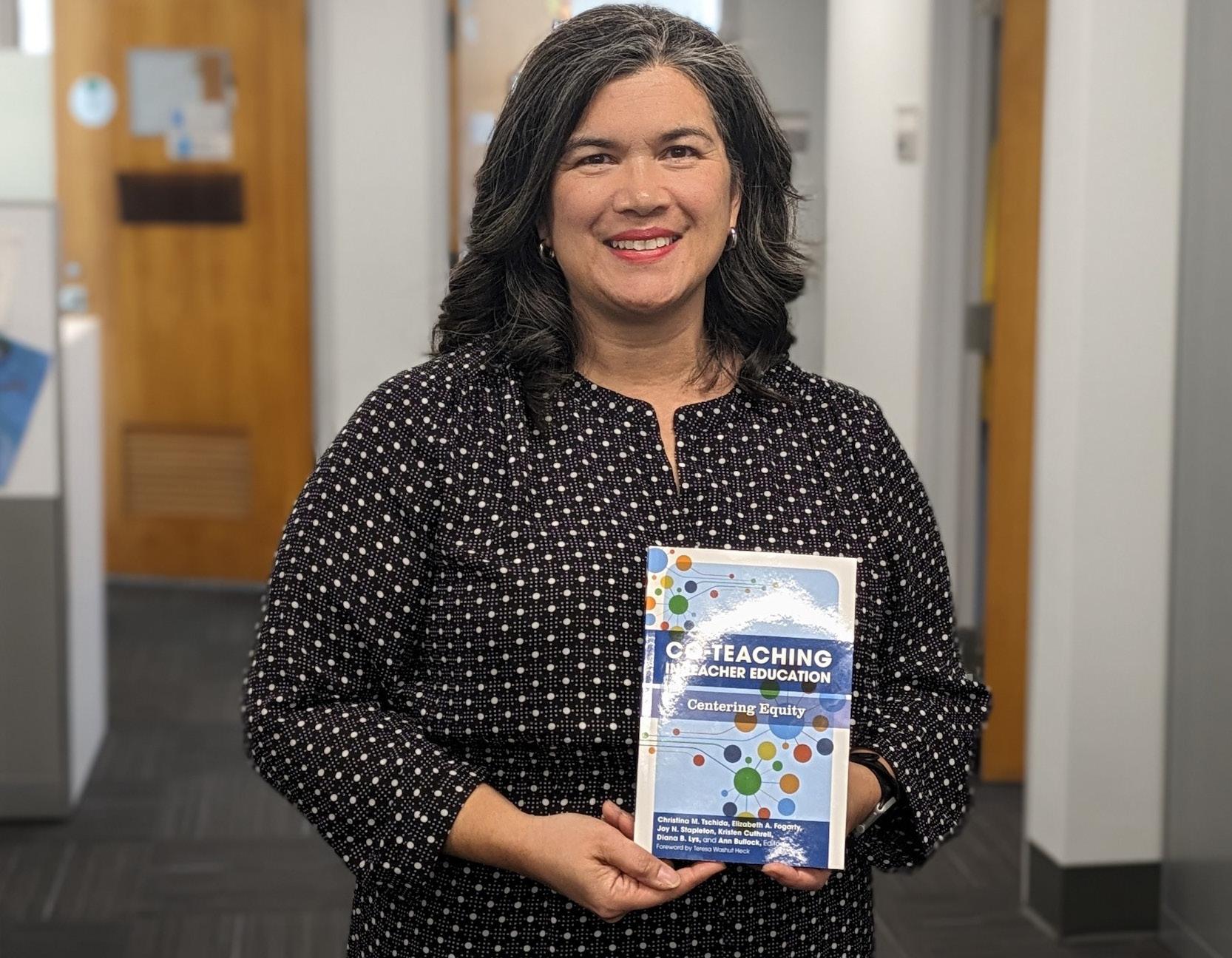

The UNC School of Education embraces a comprehensive perspective on education, which is evident in our array of program offerings. From undergraduate to doctoral levels, our cutting-edge programs offer students access to leading scholars and professionals, equipping them with the tools, knowledge, and experiences necessary to excel in various settings and fields.
Doctor of Education in Educational Leadership (Ed.D.)
K-12 Leadership
Organizational Learning and Leadership (online)
Doctor of Philosophy in Education (Ph.D.)
Applied Developmental Science and Special Education Culture, Curriculum, and Teacher Education Learning Sciences and Psychological Studies Policy, Leadership, and School Improvement
Doctor of Philosophy in School Psychology (Ph.D.)
Master of Arts in Educational Innovation, Technology, and Entrepreneurship (M.A.)
Master of Arts in Teaching (M.A.T.)
Master of Education for Experienced Teachers (M.Ed.)
Early Childhood Intervention and Family Support
Master of Education in School Counseling (M.Ed.)
Master of School Administration (M.S.A.)
Bachelor of Arts in Human Development and Family Science (B.A.Ed.)
Bachelor of Arts in Human and Organizational Leadership Development (B.A.)
Baccalaureate Education in Science and Teaching (BEST) Minor
Education Minor
Birth-Kindergarten, Pre-Kindergarten Licensure
Interprofessional Graduate Certificate in Improvement Science and Implementation
Pathway to Practice NC
School Administration Licensure
Pathway to Practice NC is residency license teachers’ most flexible path to licensure in North Carolina.
A unique collaboration between the NC State College of Education and the UNC School of Education, Pathway to Practice draws upon the expertise of leading scholars and highly effective educators at North Carolina’s top public Educator Preparation Programs to deliver the highest quality online, competency-based education (CBE) to residency license teachers.
Since 2017, Pathway to Practice has enabled more than 530 residency license teachers — working full-time in 85 of the state’s 115 school districts — to work toward licensure at a pace that works for them.
Learn more at pathwaytopractice.com

In 2024, the UNC School of Education celebrated the inaugural graduates of the Fellows for Inclusive Excellence and Helping Heels programs.

During May 2024 graduation, the UNC School of Education celebrated the inaugural cohorts of the Fellows for Inclusive Excellence and Helping Heels programs — which, combined, aim to improve educational outcomes and access to mental health resources in rural North Carolina schools.
Introduced in February 2023, the Fellows for Inclusive Excellence is made possible by a $3 million commitment over four years and was established to provide financial support for current School of Education students in the Master of Arts in Teaching and School Counseling programs as they intern and learn from experienced, effective teachers and counselors in Chatham and Person counties’ Title 1 schools.
Upon graduation, these teachers and school counselors and their classmates have the opportunity to join schools in those districts as new professionals. If they choose to become Fellows after graduation, they receive graduated bonuses over the next three years as they opt to remain at their school.
Helping Heels — Expanding Access to Care and Enhancing Opportunities for Rural Schools in North Carolina — is funded by a $2.27 million grant from the U.S. Department of Education and places school counselorsin-training in rural high-needs schools. The project aims to encourage graduates of the School Counseling program to seek employment in these schools or similar settings, ultimately helping to address the mental health needs of rural communities.
Over five years, Dana Griffin, Ph.D., the project’s principal investigator and an associate professor in the School Counseling program, and coPIs Dorothy Espelage, Ph.D., and Lewis Hatcher, Ph.D., will support 33 counselors-in-training through coursework and yearlong internships. Data collected throughout the project will assess trainees’ clinical skills, shape professional development for site supervisors, and inform School Counseling program curriculum updates.
Meet a few students from the Fellows and Helping Heels programs and discover how these initiatives are shaping their futures:
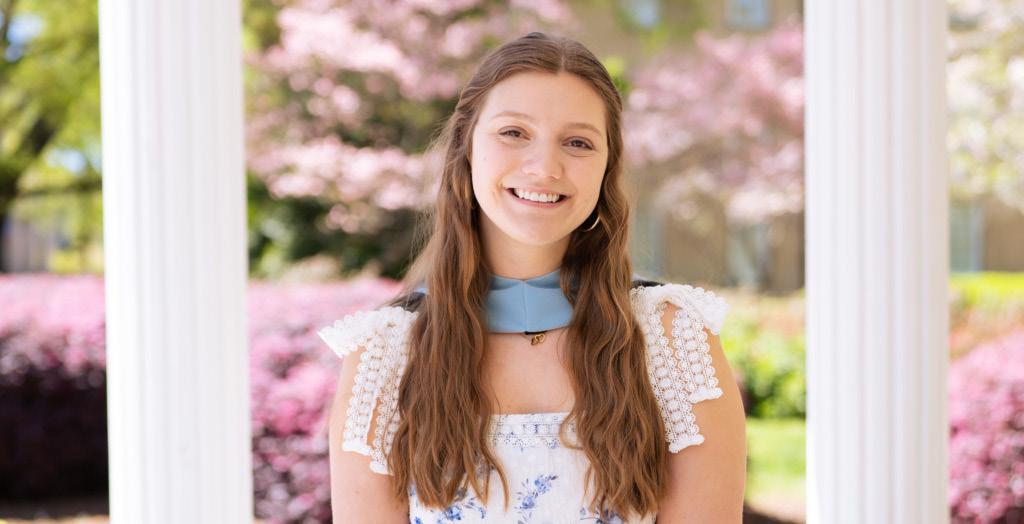
School counselor-in-training in Person County Schools
“Through my participation in the Fellows for Inclusive Excellence program, I’ve gained invaluable training and exposure that directly equips me to make an immediate impact in high-needs schools. At my school site over the course of the year, I worked with my supervisor to conduct group counseling sessions, create sensory-friendly spaces for students on the autism spectrum, and bring in resources that exposed many students to ambitions of college attendance for the first time.”
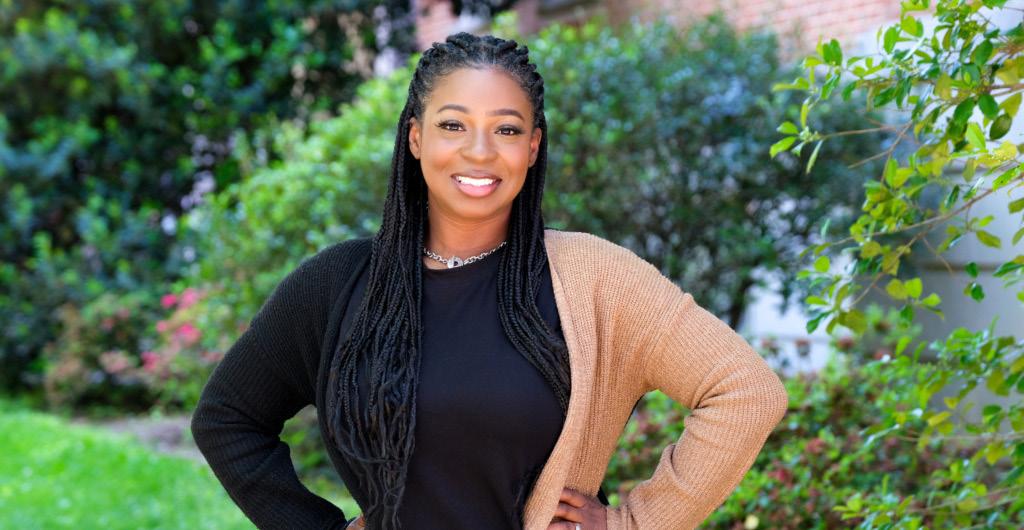
Student counselor-in-training in Granville County Schools
“Being part of the Helping Heels program has truly allowed me to understand more about not only mental health needs but also how inequitable systems impact rural students every day and how resilient and strong students in rural communities are even when facing adversities. I have learned more about how imperative it is that I utilize my roles as a school leader, collaborator, advocate, and change agent to get all students the resources they need and truly listen to student needs and voices.”
Student teacher in Person County Schools
“I entered my placement in a rural North Carolina school having no prior experience in a rural community but bringing my lived experience of attending Title 1 schools through my K-12 education. I have been exposed to a variety of students from diverse cultures, communities, and backgrounds. I believe this has allowed me to expand my perspectives and is preparing me for the diverse learners I will experience in my future classroom. This exposure allows me to be a better educator as I can bring these new perspectives into my teaching and support my high-need students.”
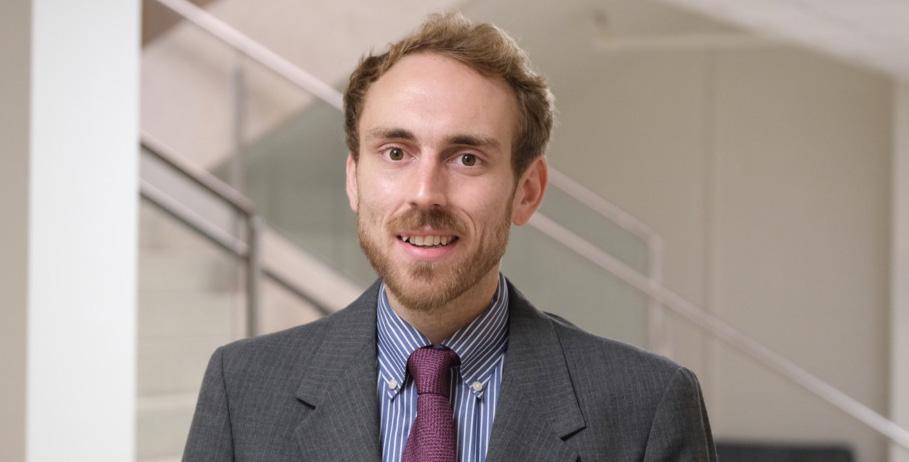
School counselor-in-training in Person County Schools
“Through the Helping Heels program, I collaborated with other education professionals, and we established a strong rapport, helping me to understand the student’s experiences and challenges more deeply. This experience has profoundly impacted me as a future school counselor. Witnessing the students’ growth and success reinforced my belief in the power of inclusive education and the need for specialized programs like Helping Heels.”
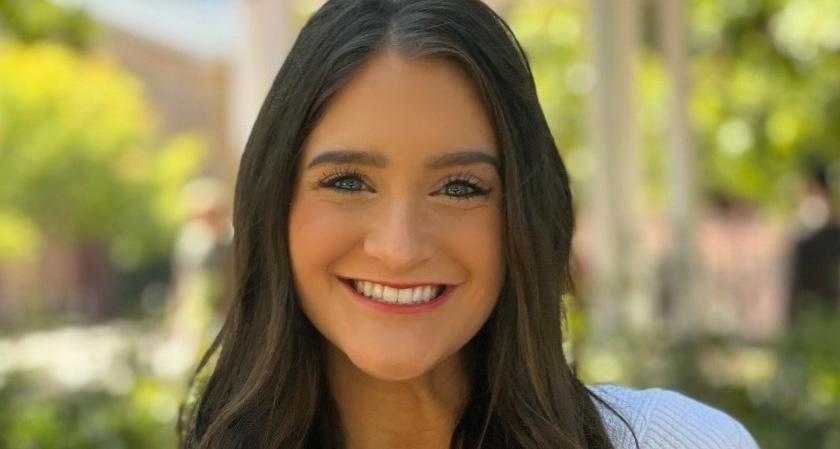
BY MARTINETTE HORNER, ED.D. MSA PROGRAM DIRECTOR
In 2021, the UNC School of Education launched its Master of School Administration program with in-person and virtual class options, enabling aspiring school leaders from any North Carolina district to access classes and expert faculty members in Chapel Hill. Martinette Horner, MSA program director, reflects on the shift to HyFlex learning.

Our Master of School Administration (MSA) program at the UNC School of Education has a history of preparing working educators for school leadership roles. Each year, our graduates often become assistant principals and then eventually lead their own dynamic school leadership teams.
Our graduates enter schools with knowledge, skills, and dispositions that create conditions resulting in positive student outcomes — learning outcomes and, equally important, “whole child” outcomes. We know children don’t come into schools as blank slates. They arrive with intervening variables, and this means our future principals must understand those variables and systems that prevent children from being their best self and student.
Our MSA students develop an equity mindset for their leadership practices. We help them to recognize inequity and systems that disproportionately affect marginalized communities in their school community. Chris Scott, Ph.D. — director of UNC LEADS, which brings North Carolina Principal Fellows from across much of the eastern part of the state — regularly reminds our students, “You can’t do anything about the things you don’t see.” Once they see these problems of practice, we prepare them to act upon them, to remedy systems that lead to inequity.
That’s one signature of our MSA program: To prepare folks who make sure all children receive what they need in their school. Another is a commitment to continuous improvement. We prepare students to lead organizations with a growth mindset — an organization that continually assesses its work, sets goals, and creates and executes a plan to realizing those goals.
In the past few years, since launching the MSA program in a HyFlex — or hybrid, flexible — modality, our cohorts have become even more diverse. Our students can attend classes face to face or virtually, and our classrooms enable them to join multiple, concurrent breakout sessions, pairing in-person and virtual combinations of students.
When I joined this program in 2016, we had gender diversity and growing racial and ethnic diversity. We didn’t have geographic diversity.
As the flagship university, we have a duty to go beyond the geographic boundaries of the Research Triangle — in service to all of North Carolina’s schools districts. HyFlex helps us do that.
We prepared future school leaders working full-time as teachers and school counselors in Wake, Durham, Orange, and Alamance counties. Sometimes we had students from a county to the north, such as Person, or to the south, such as Chatham. Having that tight geographic radius often means students bring similar experiences into our classrooms and come from similar backgrounds.
HyFlex helps us to achieve geographic diversity. Because of UNC LEADS, we have welcomed future school leaders from Bertie, New Hanover, Wake, and Wayne counties and charter schools. We hope to welcome aspiring principals from additional districts through this program.
So far, our students from across North Carolina have had a positive response to HyFlex cohorts. In a survey of our HyFlex students, all of them agreed or strongly agreed they “feel like a member of a community” in the MSA program and that they “believe [their] classmates know [them] as an individual.”
As the flagship university, we have a duty to go beyond the geographic boundaries of the Research Triangle – in service to all of North Carolina’s school districts. HyFlex helps us to do that and to provide access to our high-quality program to folks who are literally hours away.
HyFlex has already helped to enrich our MSA classrooms. I am confident it has already provided future principals with a wider lens for looking at education and the communities they serve. My goal is to utilize the HyFlex modality to help us prepare school leaders for every North Carolina district.
The UNC School of Education has launched the University’s first fully online doctor of education — the Ed.D. concentration in Organizational Learning and Leadership program, approved by the UNC System. This program is designed for working professionals, focusing on a humancentered approach to leadership and organizational goals.
The program incorporates feedback from professionals in various sectors to offer specialized courses in improvement science, change leadership, human-centered design, equitable practices, and research methodology.
Students will engage in interactive online classes, self-paced lessons, and an in-person immersion experience on the UNC-Chapel Hill campus, fostering connections with faculty, staff, and peers. The first cohort began classes in fall 2024.
The UNC School of Education’s educator preparation programs, at both initial and advanced levels, have earned re-accreditation from the Council for the Accreditation of Educator Preparation (CAEP), with no areas for improvement needed.
The re-accreditation comes after an extensive self-study conducted by the School and its programs — including Master of Arts in Teaching, Master of Education for Experienced Teachers, UNC-BEST, Master of School Administration, and Ed.D. in Educational Leadership programs — and after a virtual site visit in December 2023 from a CAEP team, which reviewed documentation, conducted interviews of faculty, staff, students, and more.
The previous accreditation review in 2018 also identified no areas needed for improvement – for which the School was one of 13 named a recipient of the Frank Murray Leadership Recognition for Continuous Improvement.
The programs are accredited by CAEP for the next seven years.
858 Enrollment
HUMAN DEVELOPMENT & FAMILY SCIENCE (B.A.ED.)
TOTAL ENROLLMENT FALL 2024
EDUCATION MINOR
MASTER OF EDUCATION FOR EXPERIENCED TEACHERS (M.ED.)
EDUCATIONAL INNOVATION, TECHNOLOGY, & ENTREPRENEURSHIP (M.A.)
EDUCATION (PH.D.)
252 178 20 45 60 41 63 42 27 35 31 64
(ED.D.)
HUMAN & ORGANIZATIONAL LEADERSHIP DEVELOPMENT (B.A.)
MASTER OF ARTS IN TEACHING (M.A.T.)
SCHOOL COUNSELING (M.ED.)
MASTER OF SCHOOL ADMINISTRATION (M.S.A.)
SCHOOL PSYCHOLOGY (PH.D.)
ORGANIZATIONAL LEARNING & LEADERSHIP (ED.D.)


Our students come from North Carolina and beyond, from careers in education and from a number of other fields and industries. Each student brings a unique perspective that enriches our classrooms, research labs, and the broader Carolina community. They all come to Carolina with a passion to redefine what it means to educate. When our students graduate, they take with them tools, knowledge, and experiences that will help them to propel the world through education.
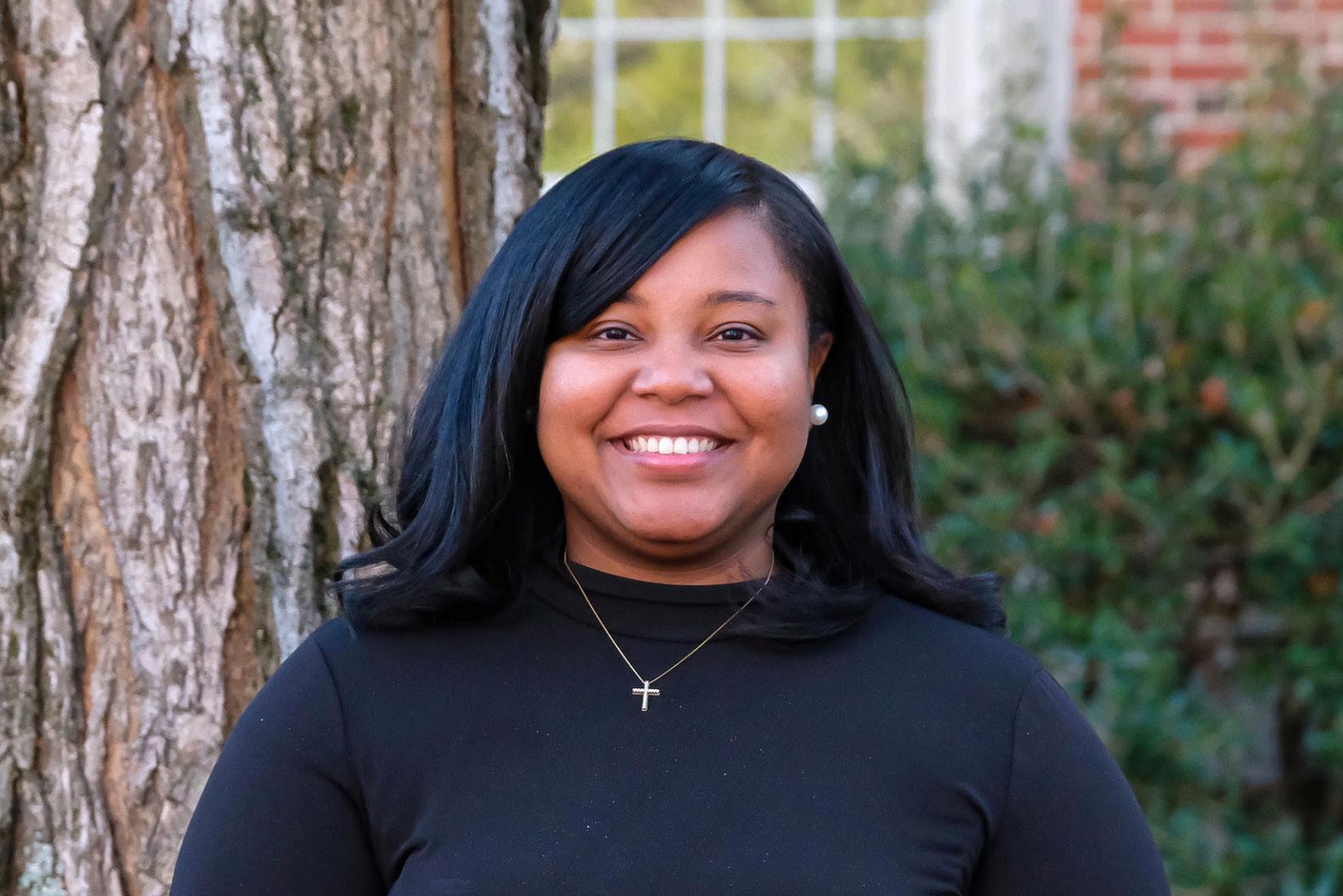
LaChelle Allen has a desire for all students to succeed, both in the classroom and beyond.
“Growing up in a rural community, I believed that pursuing a career as a school counselor would allow me to give back effectively,” Allen said. “The motivation behind what I do was to use my experiences to benefit others in rural communities.”
In May 2023, Allen enrolled in the UNC School of Education’s Master’s in Education in School Counseling program as part of the first cohort of Helping Heels — Expanding Access to Care and Improving Opportunities for Rural Schools in the Tar Heel State — program.
With faculty member Dana Griffin, Ph.D., serving as the principal investigator, the UNC School of Education was awarded a $2.27 million grant from the U.S. Department of Education to pursue the 5-year Helping Heels program which places school counselors-in-training in rural highneeds elementary and middle schools in Person and Granville Counties and motivates its graduates to seek employment in those schools or similar ones.
Through Helping Heels, Allen sees an opportunity to fulfill her passion for closing equity gaps and expanding student access to essential resources, setting her on the path to drive change as a school counselor and uplift schools and the communities in which schools are located.
“I see myself as a valuable resource,” Allen said. “The importance of mental health is at the forefront, and being in schools enables me to address and break stigmas surrounding mental health.”
After graduating from Winston Salem State University in 2019, Allen soon discovered a passion for working with young learners. She spent nearly two years teaching middle schoolers in her native Caswell County and later served as an elementary teacher in nearby Person County. To Allen, teaching enriched her understanding of the educational landscape and solidified her commitment to supporting students.
“As a teacher, I had to understand my students beyond academics, getting to know them socially and emotionally,” Allen said. “I needed insight into their home lives and backgrounds to teach them effectively and make the content relatable. Building relationships is fundamental to teaching, and students want to know you care and have their best interests in mind.”
Before school counseling, Allen was also a social worker, supporting children in foster care. Witnessing the experiences of youth during that time, she saw the need for understanding the social-emotional aspects that nurture their well-being. Wanting to advance her commitment to young people and build upon her work as an educator and social worker, Allen joined the School Counseling program with a goal of fostering equity and whole-child support in schools.
“I understand challenges some students face,” Allen said. “This enables me to better support my students. Making connections beyond the classroom gives me a more holistic view of each student. That informed my teaching methods and helped me see them as more than just learners.”
Carolina’s 14-month, cohort-based School Counseling program, which also includes a yearlong internship, provides its students with deep preparation for success as a school counselor. Recognizing the impact of a school counselor, Allen strives to create an environment where students feel heard, valued, and empowered.
“I’m dedicated to being open and honest with students, making an effort to understand and connect with them on their level,” Allen said. “Parents trust us with their children, and as students reveal their experiences, our role becomes finding effective ways to support them.”
Allen said her school counseling journey has been bolstered by the Helping Heels program, enabling her to work in rural communities and provide equitable access to counseling and mental-health resources.
“I’ve gained so much knowledge about advocacy and delved into issues of equity and equality,” Allen said.
Allen hopes to leverage this experience to better serve students in rural areas throughout her career. During the 2024-25 school year, Allen is working as a school counselor in a rural North Carolina district.

BY MACKENZIE WARREN
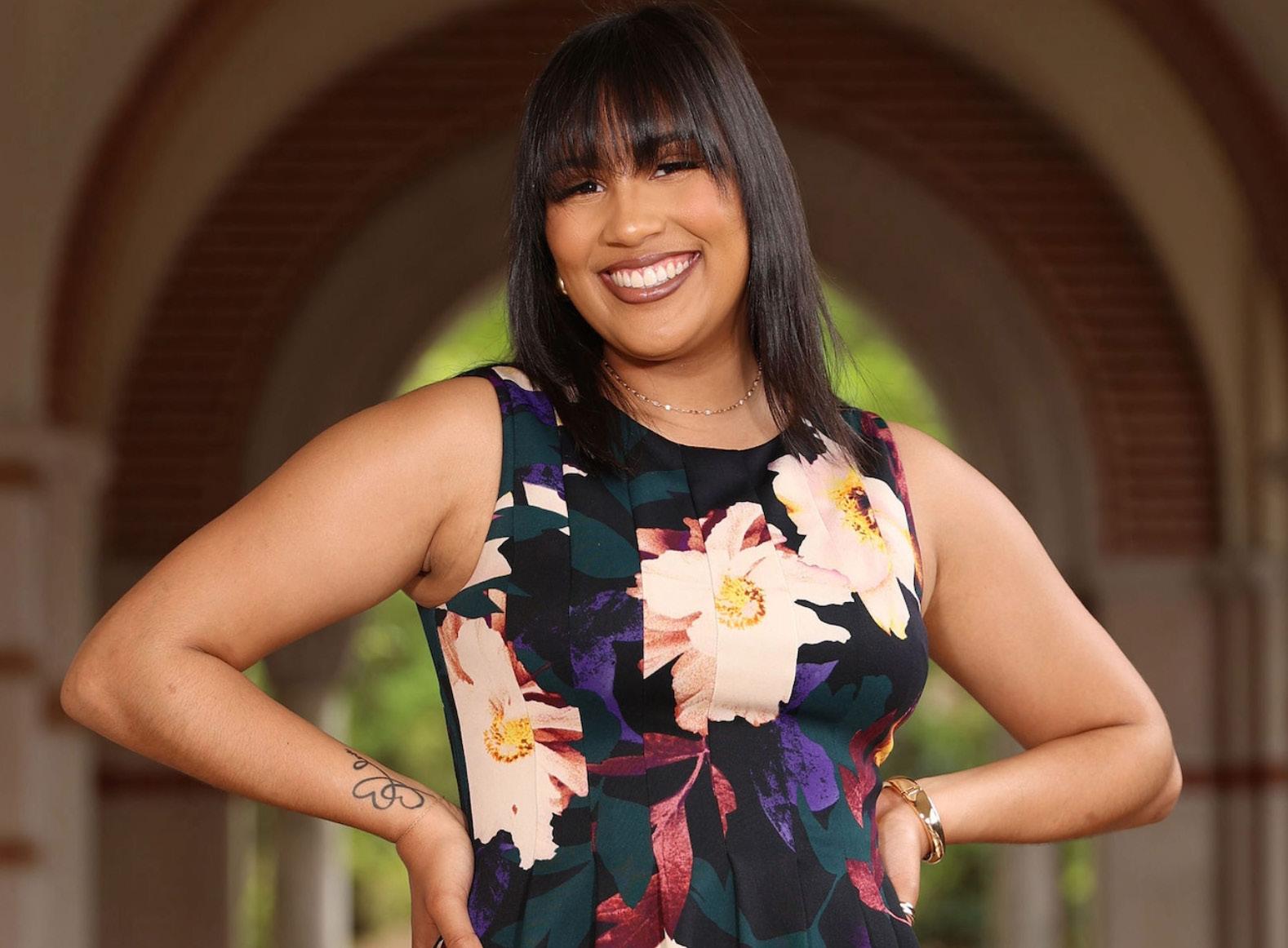
For the past three years, Dorothy Espelage, Ph.D., William C. Friday Distinguished Professor of Education, and school psychology doctoral students have led undergraduates in a course titled “Sources of Strength,” a first-of-its-kind course at Carolina aimed at promoting mental health on the Carolina campus.
Mackenzie Warren, a Robertson Scholar from Houston who took undergraduate classes at both Carolina and Duke University, completed the “Sources of Strength” class in spring 2024 and reflects below on how she plans to carry its lessons into her future after graduating.
I’m at a pivotal point in my life. I just graduated from college and am transitioning to adulthood, and I feel like I now have a clean slate for revamping my life in ways that prioritize my mental health. For the past four years, I have been a Robertson Scholar. My home base was at Duke for most of that time, but I lived on Carolina’s campus during the spring semester of my sophomore year.
Throughout college, I can honestly say that my mental and physical health weren’t always a priority in the way I desired for them to be. All the students who get into Carolina and Duke, we are high achievers who are driven academically and who are super ambitious. Being in demanding academic environments, it is too easy to get caught up in toxic mindsets such as “I need to get the best grades” or “I need to craft the best, most competitive resume.” I was no exception to falling prey to these
aforementioned mindsets; consequently, I was at the library all the time — eating out of vending machines, sacrificing time with my friends, and not exercising or moving my body in beneficial ways.
When I heard about Dorothy Espelage’s, Ph.D., “Sources of Strength” course in the UNC School of Education, I thought it could help me take better care of myself and set me up well for healthy habits in my final semester and in my post-grad future.
In the next two years, I plan to go into another academically demanding environment — law school. After taking the LSAT and working with at-risk youth in my hometown, Houston, my ultimate dream is to become a lawyer who advocates for disadvantaged and underprivileged children who struggle in systems that don’t work for them, such as the juvenile justice and child welfare systems. What I’ve learned in the “Sources of Strength” course has afforded me the skills and tools to operate at peak productivity and efficiency, as well as achieve a healthy work-life balance, in this next chapter of my life.
One other thing about the class that had a profound impact on me was the assigned campaign project. Students of the course are expected to be liaisons for what we learn in class, designing a project grounded in one of the Sources of Strengths and then sharing it with the UNC community.
My partner and I focused our project on gratitude and generosity. We “set up shop” outside of Peabody Hall; random people would stop by our table; and we then assigned them a gratitude prompt where they would either text somebody they haven’t talked to in a while, call somebody they love, or write a postcard to someone they care about and miss. To see how gratitude and generosity could put the biggest smile on somebody’s face was a beautiful manifestation of what I was learning in class.
Sources of Strength and what I learned in the class have really empowered me to tackle the inevitable hurdles fearlessly, challenges, and stress my life will bring. In my post-grad chapter, I intend to focus on continuously cultivating my strengths. By doing so, I can and will overcome anything difficult that comes my way.
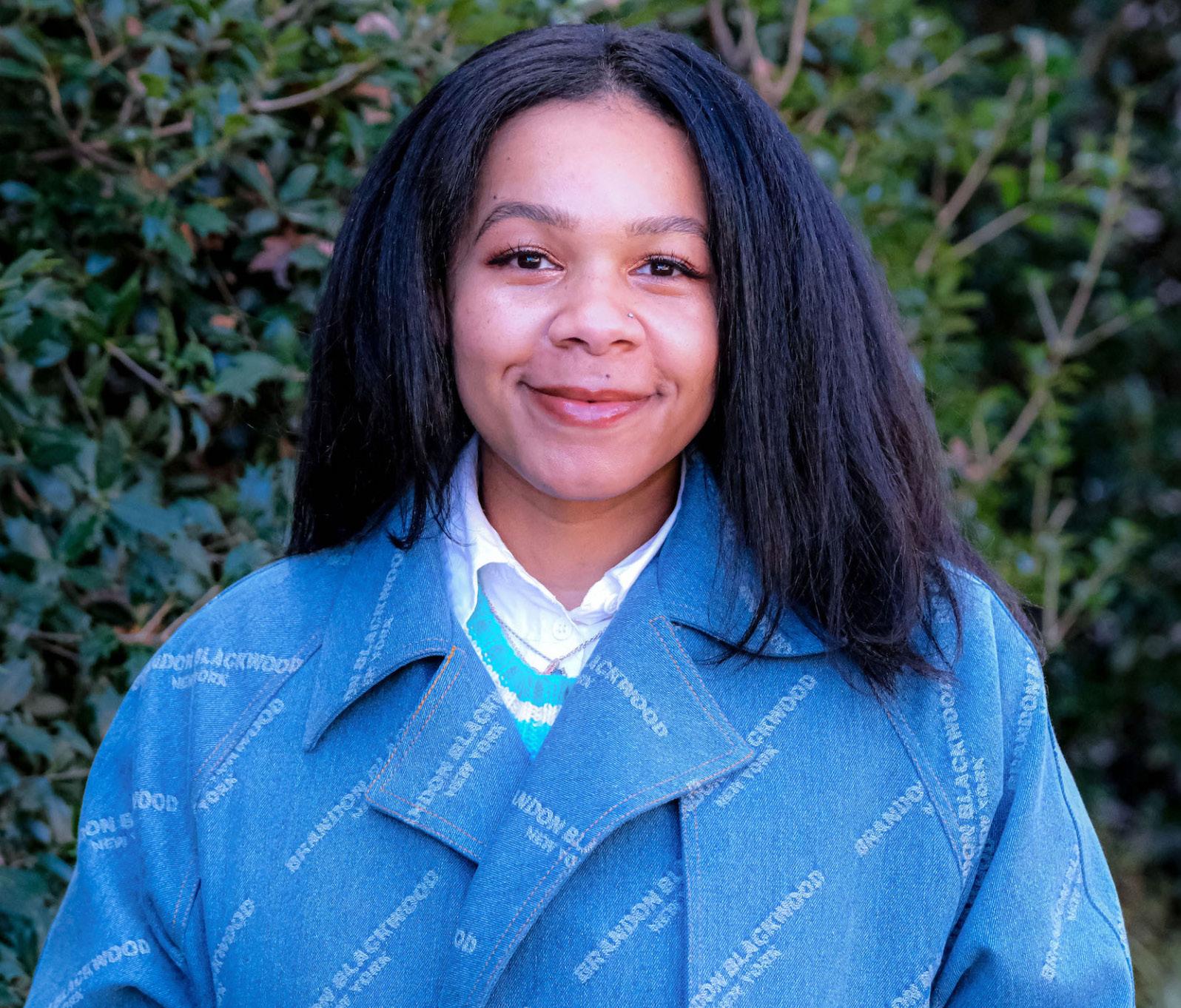
Jasmyne Yeldell’s interest in science started early in her life. It later sparked curiosity for applying a people-focused approach to make science education more accessible.
As an undergraduate biology major at the University of Miami, Jasmyne Yeldell took courses in education, discovering a passion for the study of teaching and learning. Now, as a doctoral student in the School’s Culture, Curriculum, and Teacher Education (CCTE) concentration of the Ph.D. in Education program, Yeldell draws on prior educational and professional experiences to guide research focused on the science identity formation processes of children of color and equitable science curriculum development.
“I was privileged to have a mother who prioritized my interest in science by finding summer programs and other forms of science enrichment that provided a supplement to the science education I was getting in school,” Yeldell said. “These experiences showed me what science really is — messy, fun, and about asking questions and making discoveries.”
At Carolina, Yeldell is part of the Science Education & Experiential Learning (SEEL) team, a group of researchers led by Troy Sadler, Ph.D., the School’s Thomas James Distinguished Professor of Experiential Learning.
The SEEL team includes researchers with experience in K-16 teaching, teacher education, curriculum development, and STEM education working to better understand teaching and learning in science and experiential education.
Yeldell is also part of the research team for the “I CAN PERSIST STEM Initiative: Advancing STEM Persistence among Undergraduate Women of Color through a Transformative Counterspace.” The initiative, funded by the National Science Foundation and led by Dionne Cross Francis, Ph.D., the Joseph R. Neikirk Professor, explores how an innovative multigenerational STEM environment can enhance STEM retention and persistence among undergraduate women of color.
“I want to show students that they can participate in science education or careers,” Yeldell said. “It shouldn’t feel inaccessible. I want my research to prove that science is fun and helps us understand the world around us, making it something everyone can access.”
After earning her bachelor’s degree in biology in 2018, Yeldell embarked on a gap year with AmeriCorps in the Washington, D.C., area, stepping into a classroom for the first time.
Yeldell loved the classroom experience and connecting with her students. However, she became aware of systemic challenges students face. This prompted her to explore education policy, aiming to discover solutions from both global and local perspectives — leading her to graduate with a master’s degree focused on international education policy management from Vanderbilt University.
Yeldell joined the School’s Ph.D. program in 2021, driven by a desire to enhance her skills in curriculum development and STEM education and aiming to explore the customization of curriculum to support students and school communities.
For Yeldell, the research experiences she has had at Carolina not only broaden her perspectives within education but also enrich her understanding of the challenges faced by minoritized communities in science curriculum.
Yeldell aspires to tailor educational programs to bridge the gap between student interests and learning standards, leveraging the skills she has honed during her work within the CCTE program and applying them as she curates her dissertation.
“I hope that my research is able to add to a larger part of the narrative that is currently being re-written about science education,” Yeldell said. “Science curriculum that is student-centered and spotlights engaging in authentic scientific practice. Science education that gets students and families alike excited to participate. Science education that is high quality regardless of the neighborhood it’s being taught in — science that holds meaning to the students.”
Dedicated to advanding educational innovation, Grace Willard, a 2023 graduate of the School’s Master of Arts in Educational Innovation, Technology, and Entrepreneurship (MEITE) program, is utilizing emerging technologies to advance equity-focused educational experiences across sectors.
With funding from EY, and in collaboration with UNC Kenan-Flagler School of Business and UNC Blue Sky Innovations, Willard and a team of UX/UI designers developed a virtual reality diversity training simulation aimed at improving interpersonal skills acquisition and addressing issues around diversity, equity, and inclusion in the workplace.
With a bachelor’s and master’s degree in elementary education from the University of Florida, Willard brings an educational foundation to her work. That background, coupled with her MEITE program experience, has cultivated a skill set that enables her to strategically integrate technology and innovation into educational practices.
“We wanted to craft an experience where learners felt motivated to change workplace behaviors and build empathy for those around them,” Willard said. “The focus was not on just creating the same product that focuses on definitions, but rather to create an experience in which the user felt some sort of motivation to change their behaviors in the workplace.”
In the summer of 2022, she and a team began conceptualizing how virtual reality could provide an immersive learning tool for diversity training and saw an opportunity to create simulations that improve inclusive behaviors and offer employees an opportunity to practice identifying and responding to varying workplace scenarios.
“I served as both the instructional designer and an educational producer on set — overseeing the filming and setup while ensuring the storyline aligned with our goals,” Willard said. “We started by identifying the skills we wanted learners to acquire through the virtual reality experience to support DEI goals in the workplace. Recognizing that virtual reality enables different types of data collection and immersive experiences compared to web or in-person role playing, we tailored the scenarios accordingly.”
After piloting the initial simulation in fall 2022, Willard and her collaborators produced multiple immersive training episodes and

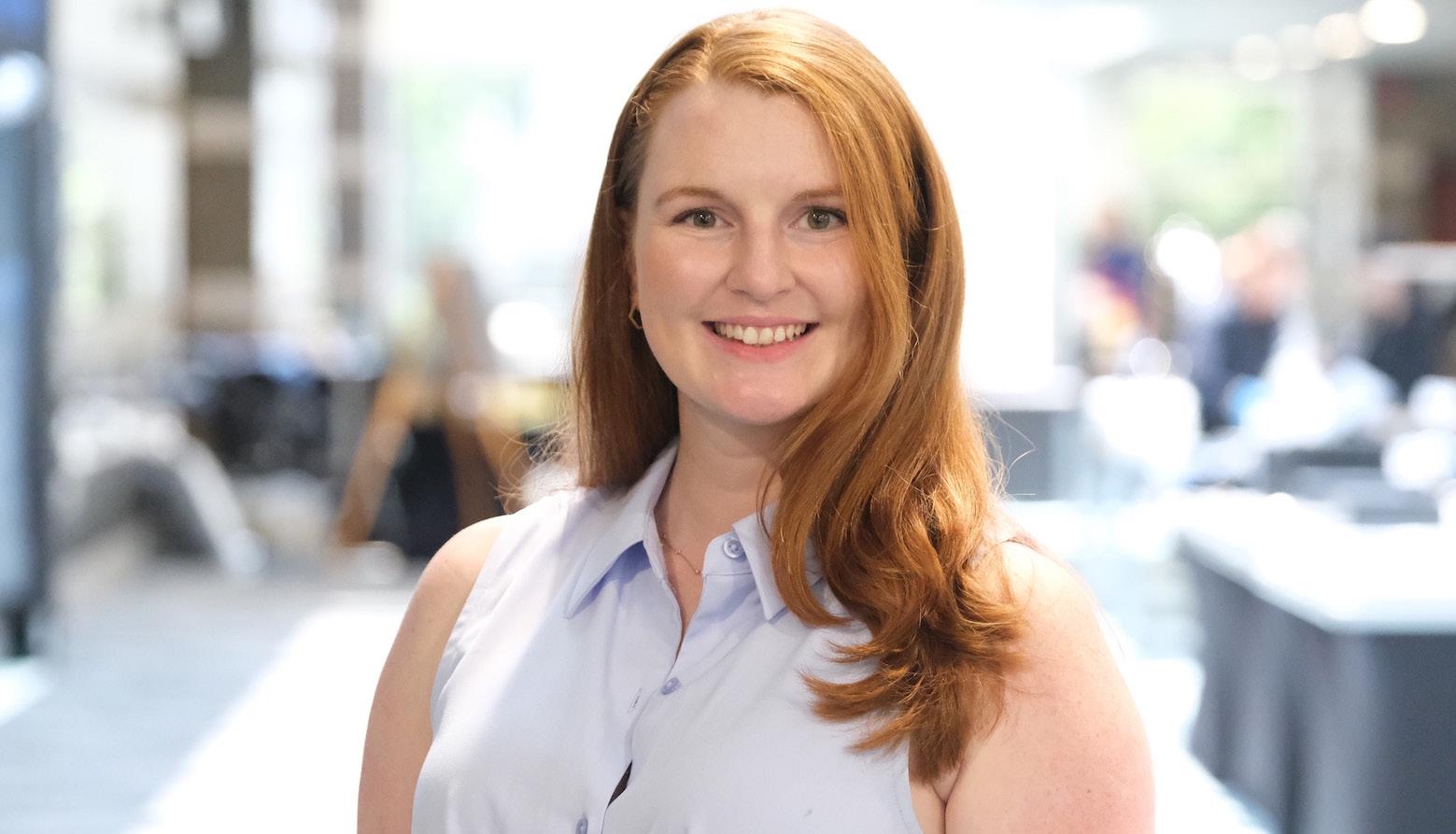
filmed the scenarios to maximize emotional impact and provide opportunities for learners to navigate difficult conversations from varying first-person perspectives.
“Developing virtual reality requires technical programming skills that I’m continuing to build,” Willard said. “I focused on bringing my instructional design and user experience knowledge to complement the developers’ coding expertise. This collaboration enabled us to capitalize on everyone’s strengths.”
Beginning her career as a teacher and later moving into the customer service industry, Willard has spent more than seven years studying customer needs, diverse populations and their experiences, and insights into learning styles that communicate complex ideas. After starting the program in January 2022, Willard valued gaining insights into the field of educational innovation and garnering the necessary tools to effectively develop her simulation through partnerships with subject matter experts.
“The biggest takeaway from MEITE has been developing the ability to advocate for effective educational practices,” Willard said. “Working with Dr. Cherner and the cohort fostered this skill. We all came from different backgrounds and perspectives, which allowed us to explain research and theories in new helpful ways. This led to insightful conversations and improved product development.”
Since graduating from the MEITE program in summer 2023, Willard and the simulation team continue to develop episodes for use at Kenan-Flagler and partnering organizations.
“Technology can help to improve the way that we’re either providing instruction or helping to transfer these skills,” Willard said. “Whether they’re soft skills or hard skills, we can transform an individual’s experience from feeling discouraged about learning new skills to recognizing areas for growth and building confidence.”
Last fall, Willard began working as an instructional specialist with the UNC Kenan-Flagler Business School, working to bring a new vision to faculty looking to enhance their courses.
Willard presenting at MEITE’s Innovation Showcase and AI Forum on Education, hosted on July 28, 2023.

Willard showcasing the VR simulation at MEITE’s Innovation Showcase and AI Forum on Education, hosted on July 28, 2023.
In February 2023, the School announced the launch of a unique fellowship program to enable a multi-faceted approach to ensure highly effective educators serve students in rural, high-needs North Carolina communities. With a $3 million commitment over four years, the Fellows for Inclusive Excellence program would support current School of Education students — student teachers and school counselors-in-training — and recent graduates to serve rural schools.
Grace Landrum (’23 B.A.Ed., ‘24 M.A.T.), is one of 14 students — in the MAT and School Counseling programs — in the inaugural cohort of the program.
“Through the MAT and Fellows programs, I am gaining a better understanding of how to support my students,” said Landrum, who is student teaching this year at Carolina Community Academy in Roxboro, N.C. “Each student is unique, and I want to learn how to appropriately address their specific needs and become the supportive figure they require.”
Growing up in a small town in rural North Carolina, Landrum’s passion for teaching began in middle school. Influenced by the impact of her teachers, Landrum found herself reflecting on the ways they shaped her educational experience, resulting in her developing a desire to pay it forward to future students.
After graduating from high school in 2019, she attended Coastal Carolina Community College in Jacksonville, N.C., and received her associate’s degree.
Landrum transferred to Carolina in 2021 and joined the School’s Human Development and Family Science (HDFS) program. Through HDFS, she explored elements of education, human development, and counseling that solidified her passion to become an educator.
“Through HDFS, I gained a better insight into how families function, and the roles they play in children’s lives in and outside of school,” Landrum said. “This viewpoint equipped me to understand how to support the whole child, not just their academic performance.”
After graduating from the HDFS program in 2023, Landrum, a firstgeneration college graduate, continued her education through the School’s MAT program. When searching for scholarship opportunities, Landrum found the Fellows for Inclusive Excellence program.
The Fellows program was designed to provide tuition and travel funding to support MAT and School Counseling program students as they intern and learn from experienced, effective teachers and counselors in Chatham and Person counties’ Title 1 schools. Once graduated, Fellows will have the opportunity to apply and return to their schools or districts as new professionals, receiving a graduated bonus over three years, if they opt to stay.
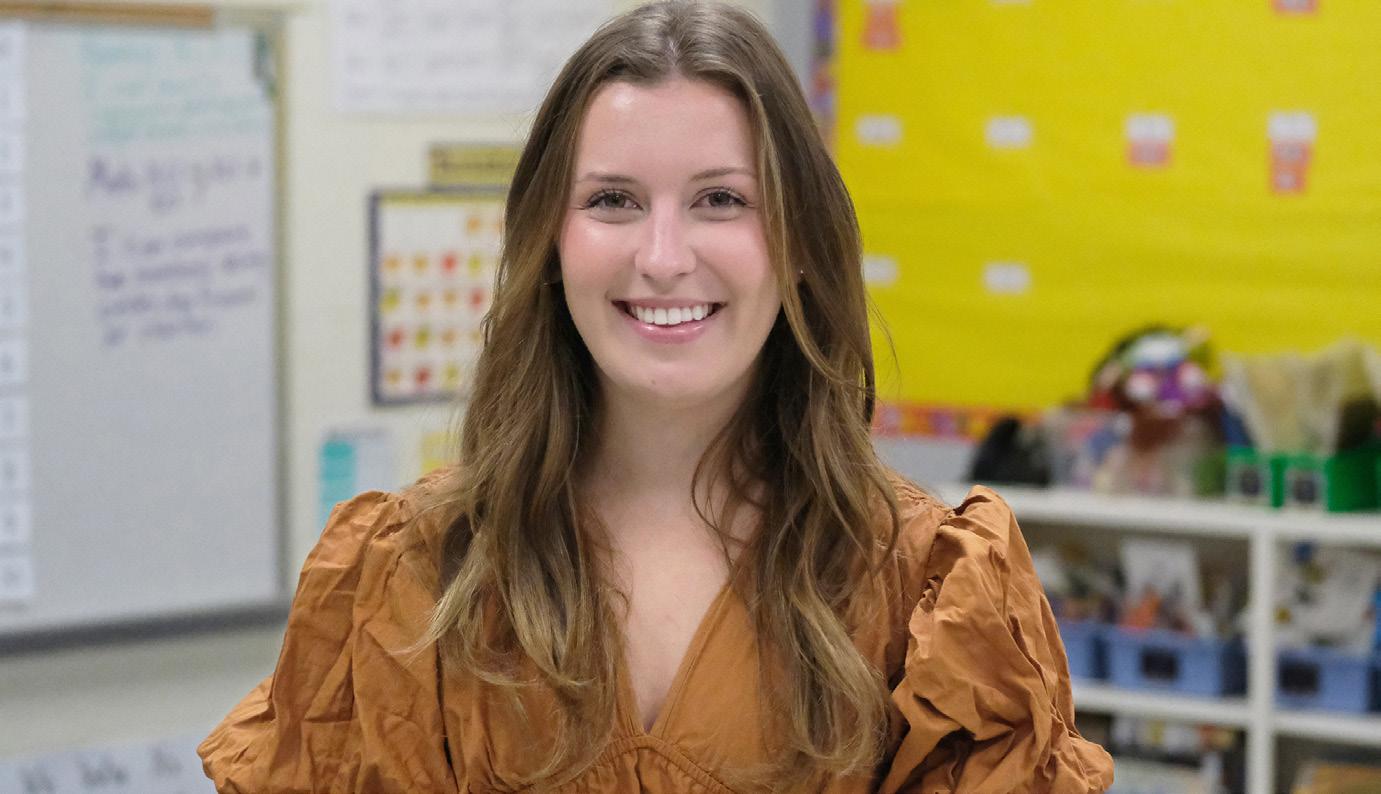
“Growing up in a smaller town with numerous Title 1 schools, I know there are areas with a genuine need for support,” Landrum said. “The Fellows program not only helps my academic journey but also allows me to bring quality education to areas where it is needed the most.”
In August 2023, with the beginning of the North Carolina public school year, Landrum started as a student teacher at Carolina Community Academy (CCA), an innovative K-2 school located at North Elementary in Roxboro, N.C., and a partnership between UNC-Chapel Hill and Person County Schools.
At Carolina Community Academy, Landrum is provided with the space to learn and grow and to help implement crucial support systems for underrepresented students.
“At Carolina Community Academy, it’s a tight-knit community where everyone knows each other,” Landrum said. “The familiarity among students, teachers, and the daily morning greetings creates a home-like atmosphere. My time at CCA was unique and, most importantly, fulfilling.”
As she reflects on her experiences so far within the School of Education, she said she found a strong sense of community and belonging, an inviting atmosphere that fostered a deep sense of connection and purpose.
“One thing I learned at the School of Education is that I have a strong support system, whether from faculty, professors, or fellow students,” Landrum said. “When I transferred, I worried about finding friends and feeling accepted coming from a community college. However, I quickly found that I was welcomed into the community.”
To Landrum, she recognizes that students who face challenges in school, or who feel unsure, need teachers who provide meaningful support. As a Fellow and student teacher, she aims to ensure students feel empowered i n the classroom.
“I’ve always loved going to school,” Landrum said.” I’ve been fortunate to have wonderful teachers, professors, advisors, and a supportive community who have inspired my journey towards becoming an educator. My desire is to teach, to inspire children, and to be a supportive figure for them as they navigate their educational paths.”
“
I want to create a positive environment for my students so that they can look back and remember me as a teacher, but also look back at the sense of community that we created as a class.

As a student in the School’s Human and Organizational Leadership Development (HOLD) program, D.J. Murphy, a 2024 graduate, built upon his academic and professional interests through interactive experiences that cultivated his leadership skills and knowledge in public safety.
In spring 2023, Murphy began as a Thorpe Undergraduate Intern with the Chapel Hill Fire Department and continued into the summer. In the role, Murphy took on the project of centralizing the department’s different data sources into one easy-to-access location. By organizing this data and creating centralized repositories of information, Murphy helped improve information sharing and collaboration across the department.
I
had the chance to sit in on one of the
operational
meetings,
and they’ll bring in important information. It was very informative to see the different decisions that are made within an organization from the top leaders.
Murphy, who is now entering his senior year, was eager to gain practical leadership experience at a public service organization within his internship experience that would enable him to witness the importance of hands-on involvement in shaping the community.
“This internship has allowed me to see how a small-town fire department operates compared to bigger towns and cities like Cary or
Durham,” Murphy said. “It allowed me to see how a fire department chain of command works.”
This internship also aligns significantly with his previous experience in emergency services and his goals to take on a leadership role in public safety or the medical field.
His late grandfather served the Harrells Volunteer Fire Department, out of Ivanhoe Station 1A, in Sampson County, as a volunteer firefighter. Seeing his grandfather’s dedication inspired Murphy’s interest in public service, which motivated him to take a course to become an emergency medical technician (EMT).
Eager to follow in Henry’s footsteps, he aspired to join the Harrells Volunteer Fire Department — at age 13. However, due to age restrictions, he had to wait until 2018 when he turned 16 to join as a trainee.
Over the past few years, Murphy has also served as an EMT in various North Carolina counties including Duplin and Orange. As an EMT, Murphy said he has developed key skills in emergency response, patient care, and critical thinking.
When he entered Carolina in 2020, Murphy intended to major in nursing, an extension of his EMT work. He knew he wanted to be a part of a program that enabled him to gain the necessary leadership and organizational skills that would help him excel within the field of public safety. When he found the HOLD program, he knew it could help him to cultivate those leadership skills.
“The biggest thing for me has been seeing and hearing the different opinions from my classmates,” Murphy said. “Even though we all work together, everyone thinks differently. Being in these classes has shown me how we can take different ideas and piece them together to reach a conclusion that benefits everybody.”

student named to the National Assessment
In 2023, Lisa Ashe, a doctoral student in the Ed.D in Educational Leadership program’s K-12 Leadership concentration, was appointed to the National Assessment Governing Board to oversee the Nation’s Report Card. She has experienced a diverse professional career, from high school teacher to a district curriculum specialist in the Charlotte-Mecklenburg and Cabarrus County school districts; now, she is a secondary mathemathics consultant for the North Carolina Department of Public Instruction.
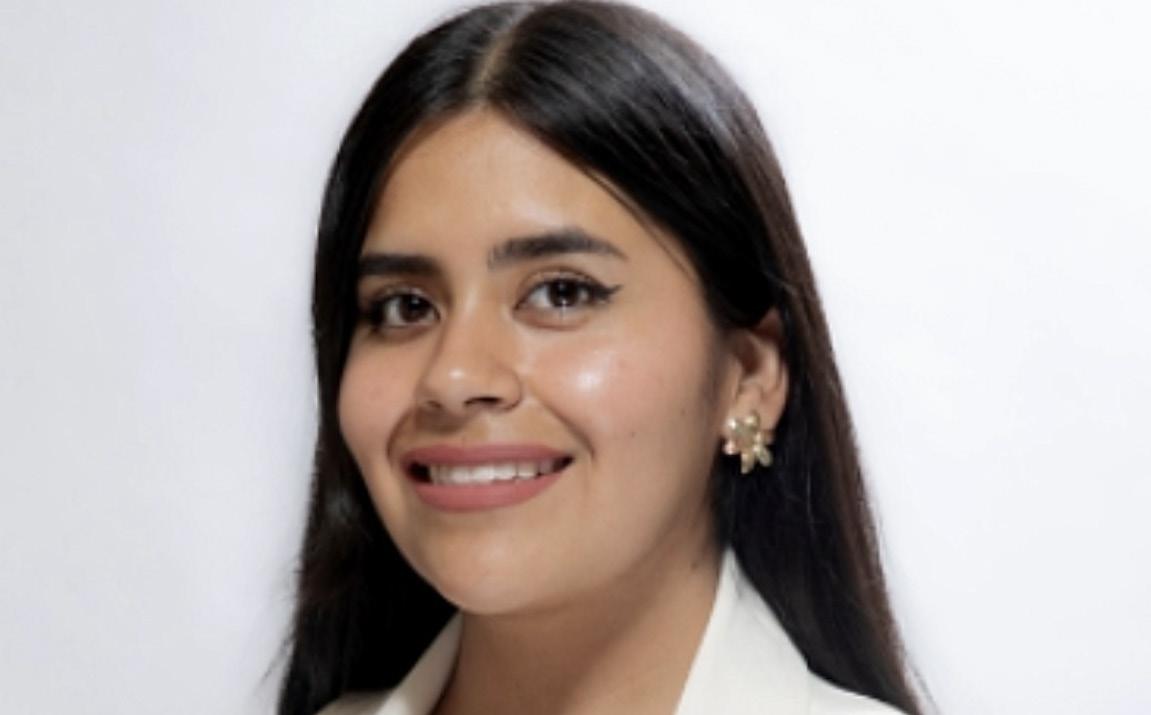
HOLD student part of the first cohort of the Morehead-Cain Foundation’s Sophomore Intake Initiative
The Morehead-Cain Foundation launched the Sophomore Intake Initiative in September 2023 to identify a cohort of current sophomores at UNC-Chapel Hill who have demonstrated exceptional scholarship, leadership, and character. Kassandra Ciriza-Monreal, a HOLD student , is part of the first cohort.

HDFS student named recipient of the 2023-24 Faith Danielle Hedgepeth Award
In March 2024, Tehya Sepulvado, an HDFS student, was named the recipient of the 2023-24 Faith Danielle Hedgepeth Award. In 2015, the UNC American Indian Center established the award to celebrate and honor the life of Faith Danielle Hedgepeth by providing a sophomore with funds to support academic pursuits at Carolina.

Ferreiro named as 2024 UNC Student Teacher of the Year
Avery Ferreiro (’23 B.A.Ed., ’24 M.A.T.) was named the 2024 UNC Student Teacher of the Year — as part of the North Carolina Association of Colleges for Teacher Education’s statewide Student Teacher of the Year award competition. In August 2024, she was named as a finalist for the award.

Carolina Community Academy is an innovative K-2 laboratory school in Roxboro, N.C., and a partnership between UNC-Chapel Hill and Person County Schools. The UNC School of Education leads a campus-wide coalition of schools and units providing Carolina Community Academy students, their families, and their community with opportunities and services that draw upon the best of what Carolina has to offer.
In addition to serving kindergartners and first graders, Carolina Community Academy fostered new collaborative efforts in the school’s second year of existence. Those collaborations, on the UNC-Chapel Hill campus and in Person County, are already working to better serve students and families. A research project with Gillings School of Global Public Health master’s students provided Carolina Community Academy with a Person County asset map that can be shared with families in need of a variety of resources. New projects with UNC units are already underway for the 2024-25 school year, and Carolina Community Academy already has made a valuable connection between Person High School’s JROTC and Carolina’s Army ROTC, strengthening the full K-12 experience of Person County students. At the conclusion of the 2023-24 school year, academic outcomes showed that Carolina Community Academy leadership and staff provided students, who have diverse needs, with high-quality instruction and critical wraparound services.
Students
69% 80% 18%
PROFICIENCY PROFICIENCY WITH DISABILITIES
Carolina Community Academy believes schools play an integral role in communities. Because of that belief, Carolina Community Academy works to generate and foster excellent opportunities and outcomes for students, families, and staff. In 2023–24, Carolina Community Academy partnered with the following UNC units, in addition to the School of Education, to “educate the whole child”:
UNC Gillings School of Global Public Health
Ackland Art Museum
Carolina Athletics
Morehead Planetarium and Science Center
UNC Adams School of Dentistry
UNC School of Medicine
UNC Office of Interprofessional Education and Practice
Carolina Community Academy also benefited from organizations in the Roxboro and Person County communities, including Just Love, Backpack Buddies, Resource Room, Person High School JROTC, Person High School National Honor Society, Alpha Kappa Alpha Sorority Incorporated, Sheetz, and Food Lion.
Students
13%
ENGLISH LEARNERS


The UNC School of Education proudly boasts more than 22,000 alumni across fields and professions. They are often distinguished, and many go on to earn teacher of the year, counselor of the year, and principal of the year distinctions in their schools, districts, regions, and states. Each possesses an unwavering commitment to students and educators and the foundational role that education plays in our world.


Working at organizations that include
Carolina Community Academy
Chapel Hill-Carrboro City Schools
Chatham County Schools
Code the Dream
Davidson College
Durham Public Schools
Edpuzzle
Greene County Schools
Guilford County Schools
Lee County Schools
McGill University
MetaMetrics
NC State University
North Carolina Central University
North Carolina Department of Public Instruction
North Carolina Virtual Public School
Northwestern University
Orange County Schools
Person County Schools
The School District of Philadelphia
University of Michigan
University of Washington School of Pharmacy
UNC Office of Scholarships and Student Aid
UNC School of Data Science and Society
U.S. Department of Education
Wake County Public School System
Wake Forest University
Winston-Salem/Forsyth County Schools
Our Board of Visitors convenes some of the best minds in North Carolina’s education landscape. Collectively, members have decades of educational and philanthropic experience in the state, and they graciously share that expertise as advocates for the School.
Michael D. Priddy (’70 A.B., ’75 M.Ed., ’81 Ed.D.)
Board of Visitors Chair
Educational Consultant and Speaker, 21st Century Leadership LLC North Carolina Public Schools Superintendent (Retired)
Alison Cleveland (’03 B.A., ’14 M.S.A.)
Principal Green Hope High School
Frank R. Comfort (’69 M.A.T.)
Head Swimming Coach (Retired) University of North Carolina at Chapel Hill
Fred Pfohl Crouch II (’70 B.A., ’71 M.A.T.)
Social Studies Specialist (Retired) Prince George County Schools
Robert Wendell Eaves Jr. (’58 B.S.B.A.)
Owner, Chairman, and CEO (Retired) The Right Stuff Food Stores
Tracy Zeigler Goyne (’86 A.B.Ed.)
Director of Inclusion & Engagement
Sabre Corporation
Marc Gustafson (’97 A.B.Ed.)
Partner
Essex Richards P.A.
Ronald Thayer Haskins (’68, B.A., ’70 M.A.T., ’76 Ph.D.)
Senior Fellow, Economic Studies Brookings Institute
Gerry House (’88 Ed.D.)
Former Superintendent, Chapel Hill-Carrboro City Schools Board of Directors, Learning Policy Institute
Harold Lillard Kennedy III (’74 B.A.)
Partner/Attorney
Kennedy Kennedy Kennedy
Moise Khayrallah (’93 Ph.D.)
CEO and Co-Founder Emergo Therapeutics
Thomas Willis Lambeth (’57 B.A.) Senior Fellow Z. Smith Reynolds Foundation
Meghan E. Mackay Executive Director LeveragED Foundation
Christopher Riddick (’00 B.A., ’07 M.P.A.)
Head of Client Experience ReadySet
Malbert Smith III (’77 M.Ed., ’80 Ph.D.) Executive Chairman MetaMetrics
Ann Gobbel Sullivan (’57 A.B.Ed.)
Malchus L. Watlington (’68 B.S.I.R., ’69 M.P.A.)
President City Square Consulting Inc.
Willis “Bill” Whichard (’62 B.A., ’65 J.D.) Attorney Tillman, Whichard & Cagle PLLC
Former N.C. Senator, Supreme Court Justice, and Dean of Campbell School of Law
Duncan Young (’95 B.S.P.H.)
CEO
Effective School Solutions
Katie Young (’96 A.B.Ed.)
Kristen Smith Young (’01 A.B.Ed.) Director of Communications
UNC School of Data Science and Society
Amy Rickard (’94 A.B.Ed., ’00 M.S.A.)
Principal, Morris Grove Elementary President, School of Education Alumni Council
Fundraising totals:
$5.4 m FOR FY24
The School deeply appreciates the generous support of our donors — individuals and organizations — who share our commitment to the transformative power of education. Every year, we receive increasing support for innovative programs and pioneering research that have the power to significantly advance our fields. These contributions empower the School to pursue promising initiatives and address pressing needs.
Previous fiscal years
M.S.), co-founder and executive director of B3 Coffee, works to reshape the narrative around disability through her commitment to centering lived experiences, authentic community involvement, and fostering inclusivity.
Jacklyn Boheler traces her passion for working with people with intellectual and developmental disabilities (IDD) back to her childhood. From an early age, she felt a natural connection to the neurodivergent community.
As a student within the School’s Human Development and Family Science (HDFS) program, Boheler volunteered for programs that advocate for disability allyship and accessible services for neurodiverse groups, one being Best Buddies, a program that pairs UNC students with members of the Chapel Hill community who have intellectual and developmental disabilities to facilitate lasting connections.
While she gained key skills during these experiences, she also saw service gaps and disparities in adult support systems, especially in transition after graduation. Boheler’s engagement with programs like Best Buddies, and her experience as a barista at a local coffee shop became pivotal in shaping her vision.
Coffee emerged as a powerful catalyst in facilitating these meaningful connections. Motivated by the desire to create an authentic and mutually beneficial community, Boheler partnered with Best Buddies to establish B3 Coffee (initially Best Buddies Brews) in 2018, a nonprofit that utilizes coffee to provide social and vocational opportunities for people of all abilities.
“At B3, our priority is creating a strong sense of community and belonging for our members,” Boheler said. “We strive to be responsive to what our members want and need, so they feel empowered to shape the organization into something meaningful for them. The ‘glue’ that bonds us is the collaborative spirit of co-creating an inclusive space together.”
In 2015, Boheler entered the School’s HDFS program, and within the program, interned at the UNC TEACCH Autism Program, where she now works full-time. In conjunction with her experience in the HDFS program, Boheler’s internship provided her with hands-on interactions with individuals with disabilities and their families.

“In the HDFS program, I gained an understanding of family systems and learned to perceive individuals in interaction with their broader social and economic contexts,” Boheler said. “The coursework, complemented by real-life experiences that resonated with my learning style, provided me with valuable insights. I was educated on many issues around ethics, human services, and how to navigate diverse cultures and experiences.”
After graduation, Boheler embarked on a master’s degree in occupational therapy, completing it in 2021. For Boheler, the experiential learning experiences supported by the HDFS program proved transformative, providing significant preparation for her entry into her OT program.
Boheler’s experiences within the School, and Carolina as a whole, serve as a foundation for her commitment to community-based roles and empowering others through B3 Coffee, uniting her dedication to working with individuals with disabilities and furthering inclusivity.
“Being associated with the School of Education offered interesting insights into the education system, unveiling both concrete barriers and support structures for individuals with disabilities,” Boheler said.
Boheler hopes B3 Coffee will someday have a dedicated space for programming and transitional employment. She looks forward to nurturing community on campus through new locations like the Innovate Carolina Junction. Above all, Boheler is driven by her passion for neurodiversity and empowering individuals with intellectual developmental disabilities.
“B3 has transformed beyond a coffee stand, expanding into diverse programs,” Boheler said. “This organization functions as a transitional employment model, supporting the professional development of our members. At B3, we don’t just operate programs — we live life together.”

Officers
President
Amy Rickard (’94 A.B.Ed., ’00 M.S.A.)
Past President
Michael D. Priddy (’70 A.B., ’75 M.Ed., ’81 Ed.D.)
Secretary
Carole Symons Roebuck (’63 A.B.Ed.)
School of Education
Faculty Representative
Chris Scott (’03 M.S.A., ’08 Ed.D.)
School of Education
Staff Representatives
Megan Garrett (’08 A.B.J.M., ’16 M.P.A.)
Laurie Norman (’83 B.S.)
Sarah Rierson (‘16 B.A.M.J.)
Robyn Soffera (’03 A.B.J.M.)
The members of the Alumni Council represent a range of alumni in terms of their professional experience. They provide insights from that experience to inform our work to improve teaching and learning. The council is the governing body for the School of Education’s alumni. It includes the following members:
Barbara Holland Chapman (’81 Ph.D.)
Kristal Moore (’09 Ph.D.)
Eliz Colbert (’86 B.A., ’95 M.Ed.)
Laura Colson McLean (‘99 A.B.Ed.)
Belinda Corpening (’72 A.B.Ed., ’73 M.Ed.)
Dalila Dragnic-Cindric (’20 Ph.D.)
Ed Dunlap (’79 Ph.D.)
Nancy Farmer (’69 A.B.Ed., ’70 M.Ed., ’81 Ed.D.)
Sandrika Freeman (‘20 B.A.Ed., ‘21 M.A.T.)
Dan Gilfort (’03 M.S.A.)
Linda C. Hutchinson-Harmon (’74 M.Ed., ’83 Ph.D.)
Oliver Johnson (’84 Ph.D.)
Larry Mabe (’93 Ed.D.)
Mary Faith Mount-Cors (’10 Ph.D.)
Mia Murphy (’12 Ed.D.)
James Overman (’99 M.S.A.)
Melissa Rasberry (’98 A.B.Ed., ’03 M.S.A., ’07 Ed.D.)
Cindi Rigsbee (’79 A.B.Ed., ’03 M.Ed.)
Mitzi Safrit (’89 A.B.Ed.)
Kelli Hayner Smith (’00 M.Ed.)
William P. Steed (’87 Ed.D.)
Sarah S. Stephens (’09 A.B.Ed., ’19 M.S.A.)
The UNC School of Education honored four alumni at its 21st annual Distinguished Alumni Awards ceremony on Sept. 30, 2023. Awardees include:
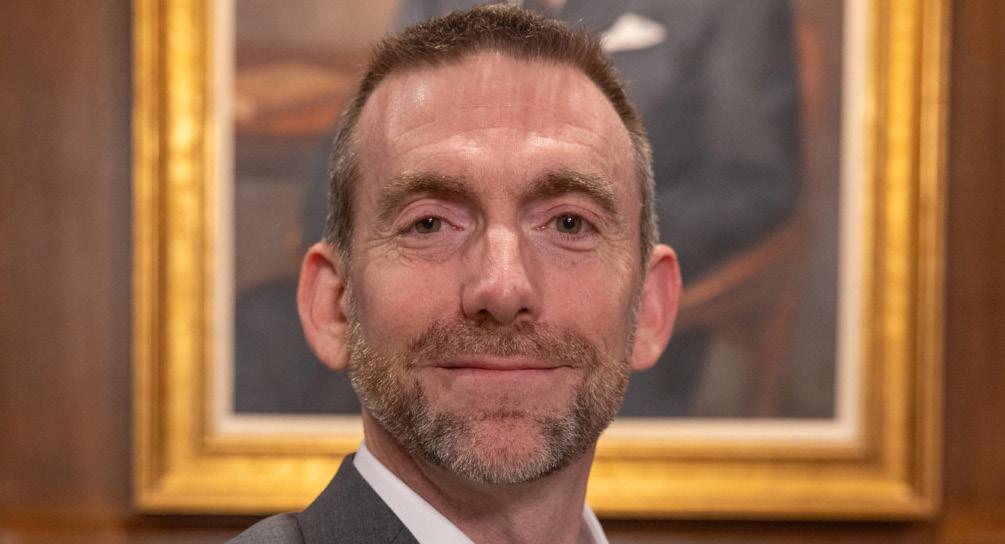
Alumni Achievement Award
Tom Feller (’20 Ed.D.)
Director Of Continuous Improvement and Professional Learning Pitt County Schools
Alumni Achievement Award
Seth Brown (’97 A.B.Ed.)
Director of Educator Support and Leadership Development Pitt County Schools


Distinguished Leadership Award
Tony B. Watlington Sr. (‘00 M.S.A., ‘08 Ed.D.)
Superintendent
The School District of Philadelphia
Distinguished Leadership Award
Elizabeth “Eliz” Colbert (’86 A.B.Ed., ’94 M.Ed.)
Executive Director (Retired) North Carolina Virtual Public School

During the past year, the UNC School of Education proudly shared news from its alumni that included the following headlines:
Lessie Anderson (‘99 B.A., ‘00 M.A.T.) was named Wake County Public School System’s 2023-24 Assistant Principal of the Year.
Kaki Blackburn (‘23 Ed.D.) received the 2024 Dissertation of the Year Award from the National Education Finance Academy.
Kristal Moore Clemons (‘09 Ph.D.) was named recipient of the Rising Star Stellar Award for Teaching, Research, Scholarship, and Service, one of the 2023-24 Virginia State University’s Outstanding Faculty Awards.
Laura Colson McLean (‘99 B.A.), vice president for academic affairs and student experience at Bennett College, was elected to serve on the TRACS Accreditation Commission.
Jill Cook (‘88 B.M.Ed., ‘91 M.Ed.), executive director of the American School Counselor Association, delivered the graduation address to the UNC School of Education’s Class of 2024.
UNC-BEST program graduate Andromeda Crowell (‘12 B.S.) was named a finalist for Orange County Schools’ 2024-25 Teacher of the Year Award.
Jennifer Hall (‘24 Ed.D.) was named principal of Club Boulevard Elementary School in Durham, N.C.
MEITE alumni Jacob Harrison (‘20 M.A.) and Paige Harriman (‘20 M.A.) released the science education game “Climate Detectives: Open for Business.”
Martinette Horner (‘96 A.B.Ed., ‘16 Ed.D.), the School’s MSA program director, wrote about the program’s shift to HyFlex learning and how it enables invaluable geographic diversity inside the classroom.
Faculty member Eric Houck (‘92 B.A.), Ph.D., provided WUNC North Carolina Public Radio with school finance expertise, talking about what shifts in education funding could mean for North Carolinians.
William Jackson (‘18 Ph.D.) and Village of Wisdom received a $4 million Education Innovation and Research (EIR) grant from the U.S. Department of Education for the organization’s “That’s Just Good Teaching Program.”
Diana Lys (‘94 B.A., ‘97 M.A.T., ‘07 Ed.D.) co-edited the recently published book “Co-Teaching in Teacher Education: Centering Equity.”
Meredith Maier (‘07 B.A, ‘18 Ed.D.) was named Orange County (N.C.) Schools 2023-24 Principal of the Year.
Victoria Plyler (‘23 B.A.Ed.) was featured by the Helping Heels program, sharing why she wants to be a school counselor in rural communities.
Lauren Oliver (‘23 M.A.T.), an 8th grade English Language Arts teacher at Culbreth Middle School, was named Chapel Hill-Carrboro City Schools’ 2024-25 Promising New Teacher of the Year.
Winston Pierce (‘88 A.B.Ed, ‘89 M.Ed, ‘01 M.S.A.) was named Wake County Public School System’s 2023-24 Principal of the Year and was also one of nine North Carolina Regional Principals of the Year.
Mike Priddy (‘70 B.A., ‘75 M.Ed., ‘81 Ed.D.) — with fellow North Carolina education luminaries Dudley Flood and Tom Williams — visited faculty member Chris Scott’s EDUC 740: “Culture Leadership” class to share insights and experiences from their careers in service to the state’s students and public schools.
Fabiola Salas Villalobos (‘20 Ph.D.) and Jerry Wilson (‘23 Ph.D.) were named fellows of the 2023-25 class of the William C. Friday Fellowship for Human Relations.
James Michael Sapp (‘20 M.A.T.) was named Buncombe County School District’s 2022-23 Secondary Math Teacher of the Year.
Samantha Shaw (‘22 M.A.T.) was named 2023 Promising New Teacher of the Year for Chapel Hill-Carrboro City Schools and was runner-up for the North Carolina Center for the Advancement of Teaching’s 2024 Empower NC Beginning Teacher of the Year Award.